A conversation with Cape Town Academic Director Stewart Chirova
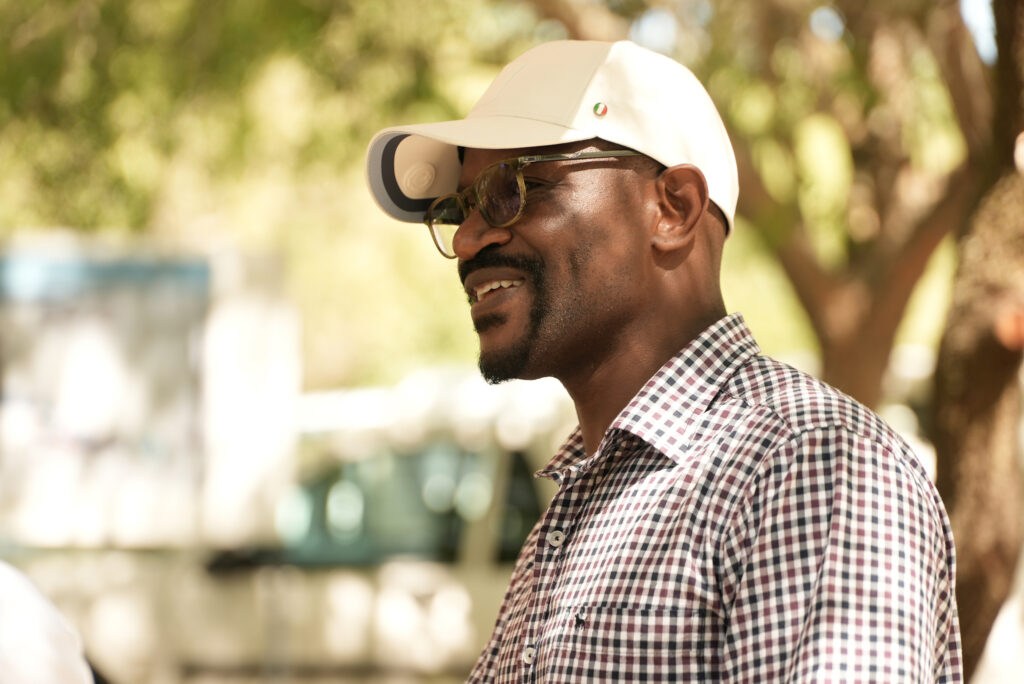
STEWART CHIROVA is academic director at the School for International Training learning center in Cape Town, South Africa, one of SIT’s busiest learning centers in the world. Chirova leads the semester-long South Africa: Multiculturalism and Human Rights program and the summer Social Justice and Activism Internship. His center this year also hosted students in two SIT Global Master’s programs: Diplomacy and International Relations, and Sustainable Development Practice, as well as various custom programs designed with U.S. colleges and universities.
Chirova has worked with SIT for nearly 20 years. We talked with him about experiential learning, reciprocity, racism, and the many students who come through his programs. Following are excerpts from that wide-ranging conversation.
You originally started with SIT in Botswana in 2002, then in 2010 you came to Cape Town, so you’ve been working with U.S. students for many years. What draws you to this work?
The work that we do at SIT is life-changing. What draws me to this work is that after spending 15 weeks with the students on a daily basis, you see the growth, you see the change, and you see the kinds of global citizens that are developing. Being part of that makes the job very satisfying.
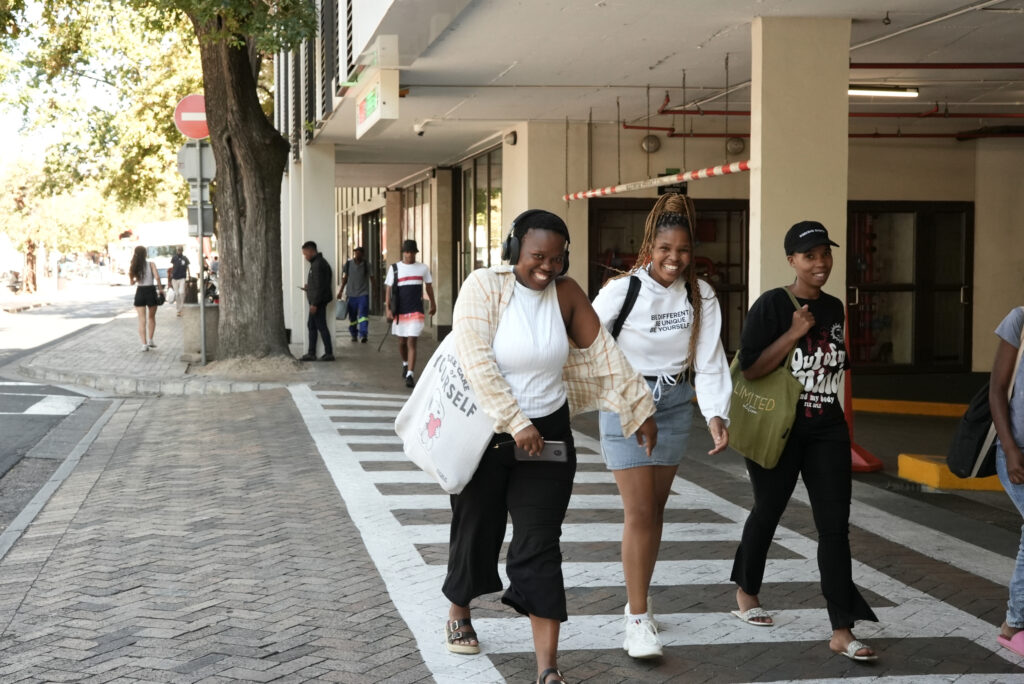
I imagine that you would see growth and change in any student population. Is there something specific about the growth you help to guide in U.S. students that motivates you?
A lot of American students are very good and knowledgeable about America, but their worldview sometimes is limited. Given the positionality of America and American exceptionalism in the world, it is even more important to give them – a broader worldview perspective—given the positions they may hold in future. One of the things that I always say to my students is that I’m not so worried about their aptitude, because SIT has a rigorous admissions procedure, but we want to nurture and develop their emotional intelligence.
I’m motivated by Nelson Mandela. One of the things that he said about Africa was that all the industrialized countries may have given the world technology, but Africa is going to give the world a sense of humanity. That’s why we do what we do here.
That goes well beyond academic teacher or mentor. What does the role of an academic director encompass?
We are both mentors and coaches to our students. I’m a mentor because I try to develop them in the things that I know and the things that they are trying to know, but I’m also their coach because I’m trying to unleash the potential that they may be sitting with but don’t realize they have. So, I see my role as balancing mentorship and coaching in order to bring the best out of my students.
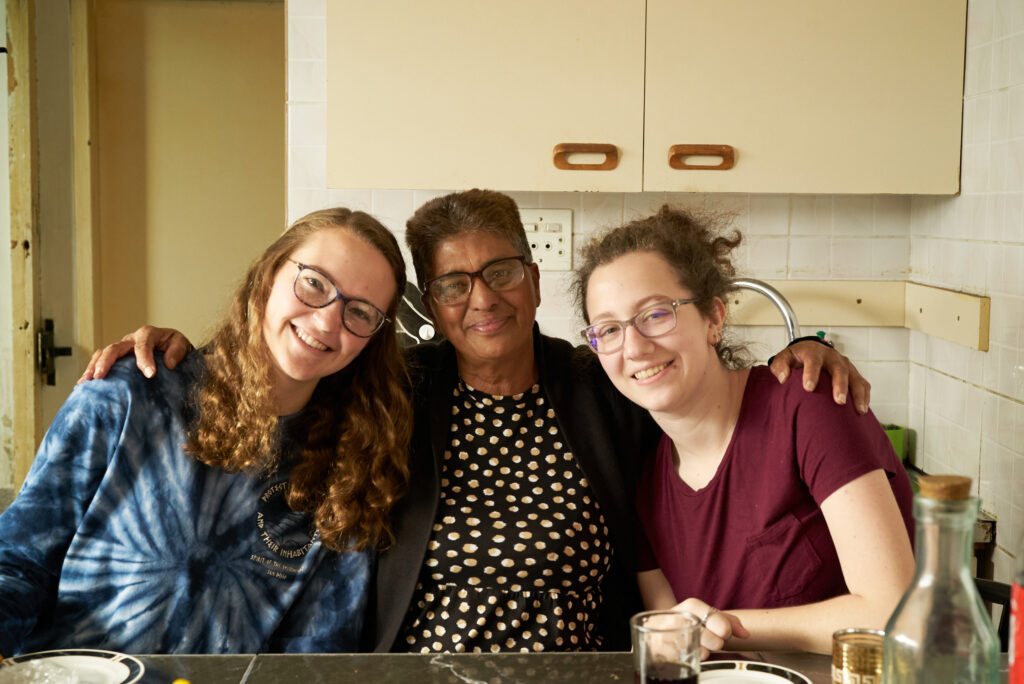
Reciprocity is an SIT value. What does that mean to you? How is a student reciprocal when they are here or when they leave?
Sometimes people think about reciprocity as something that must be tangible, like they built this, or they gave that. That becomes like aid, right? There should be a difference between aid and reciprocity. Reciprocity starts with respect between people. When the students arrive, we remind them that their experience here could either be extractive or reciprocal. When they write [on a resume or job application] that they’ve studied abroad, for example, that sentence alone is going to help them a lot. Having a letter of recommendation that says you’ve studied abroad can do wonders in one’s life. But how do they actually give back to the communities that may have changed their lives?
We don’t want that relationship to be extractive. We want it to be reciprocal, so that it’s not only the student who is benefiting from this experience but also the communities they’re working with who are also benefiting from the experience. Study abroad must be a cultural exchange, if that exchange happens and the program design is intentional, then to me reciprocity has been achieved.
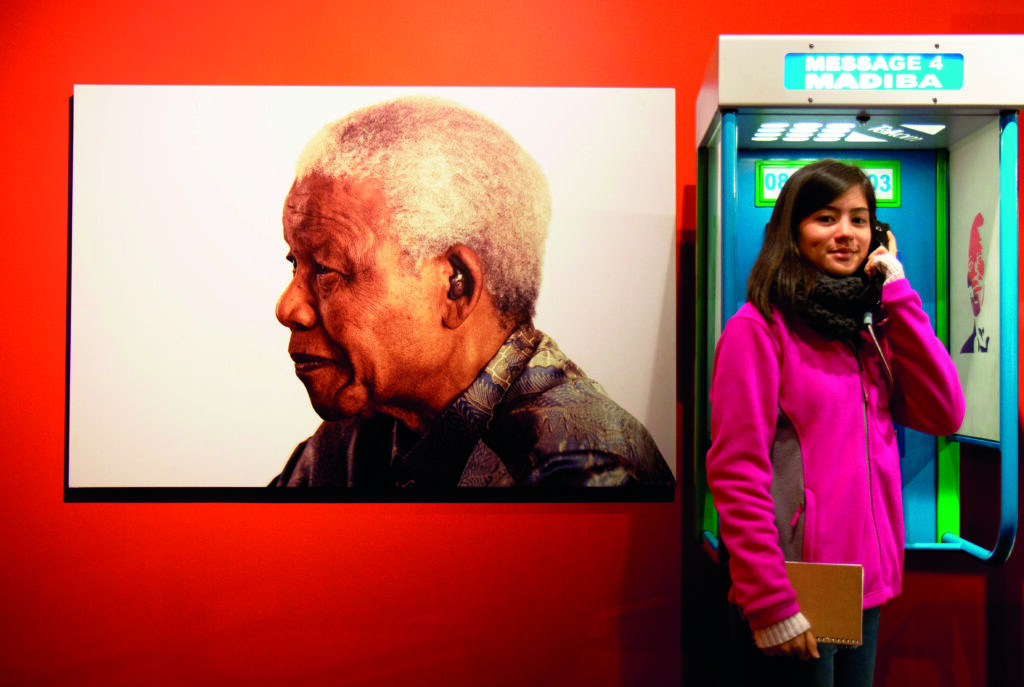
Can you talk about your approach to the SIT experiential learning pedagogy?
Most of our learning in college is that the professor comes in and they tell you what to do and then you have to give them back what they told you at some point. Experiential learning invites you to be an active participant in the experience. You tend to remember what you did and especially if you reflect on it, you may actually come up with more questions than answers.
The way I try to explain SIT’s model of experiential learning to our students is that of course it’s a cycle, and like any cycle, the entry point can be anywhere. But we always start with the experience: There must be an experience at the top and this must be followed by a reflection of the experience. There must be abstract conceptualization at the bottom, and then you have to test your assumption, or the lessons learned, by applying- the new knowledge that you have learned to new situations.
One of the things that we talk to students about is that they must have time to reflect on the experience itself, because that’s when you start asking deeper questions about what you have gone through.
Through that reflective experience they start seeing the similarities and the differences between the U.S. and South Africa
American students like to use the word “weird.” I invite my students to try not to use the, word “weird” when they’re here, but to say “different.” By accepting “difference,” immediately you are going to ask the question, “What is different about this?” And that’s when the reflection starts. The more you ask those kinds of questions, the deeper your understanding of the phenomena or the event is going to be.
I always try to explain to my students that there’s a difference between being educated and being learned. An educated person knows how to answer questions about the knowledge that they have in their heads. A learned person can ask deeper questions about the same knowledge to find out more.
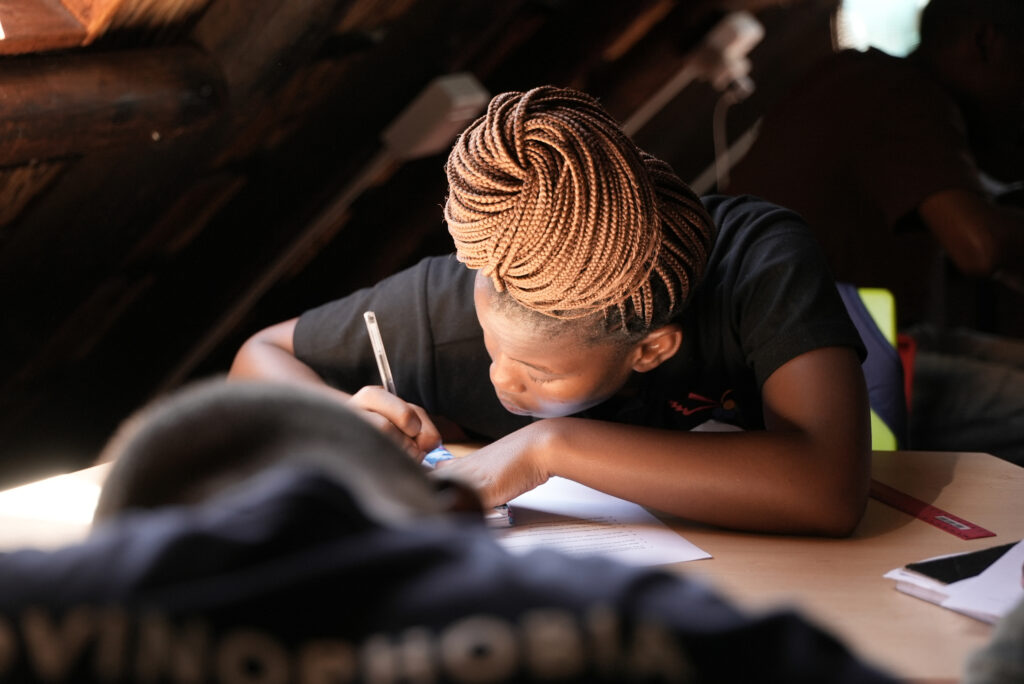
So, the process begins with experience, and obviously the experience begins when a student comes off the plane and comes to their community and their homestay. Can you describe the arc of experiences that you hope to provide over the course of your program?
Because our programs are steeped in issues of oppression and race and racism, one of the things that we try to help our students understand is that these issues are not unique to South Afric. Our students may have come here to learn about South Africa, but they’re going back home having also learned more about the U.S. and how systems of oppression work. I warn students that when you reflect on something, you are more likely to see yourself in it. Through that reflective experience they start seeing the similarities and the differences between the U.S. and South Africa.
But more importantly, we want to inspire them to think about what then. Now that they know this information, now that they know that this is how the world works, what are they going to do about it? Sometimes people say that it’s hard enough not knowing what to do, but it’s even harder not doing something once you know what to do.
Many of today’s students have had to confront race very directly since 2020 with the attention given to the murder of George Floyd and the emergence of the Black Lives Matter movement. How are you working with your students around these issues?
One of the biggest things that we have to deal with in this program, almost every semester, is group dynamic issues that are centered on race. Of course, Black students have a lived experience of what it is to be black in the U.S. When they come here, one of the things that confronts them is the grand narrative about South Africa that is out there. Most people think that South Africa has solved its past issues when it comes to race and racism. When they come here, the students find it very difficult. Black students often find out how they are more American than African, when in fact they may have come here hoping that they’re coming home, but they quickly find that home is not actually what they perceived it to be.
White students sometimes don’t know how to ask questions; they don’t know how to talk about race in the presence of a person who has that lived experience. I never call my class a safe space because there’s no such thing as safe space. But there is brave space, where you can actually sit and talk about deep issues that are affecting communities.
I never call my class a safe space because there’s no such thing as safe space. But there is brave space, where you can actually sit and talk about deep issues that are affecting communities.
When you start talking about race, one of the things that’s easier for us here in South Africa is there’s no political correctness. As soon as you arrive at the airport, you’re going to be categorized in some sort of racial category. Why? Because that’s how people relate to each other: I can’t know how to deal with you unless I box you into a racial category. So, the way you’re going to treat me, the way you’re going to talk to me, is based on that racial category. In order for me to know how to deal with you, I’m going to box you and then we’ll find each other along the way.
In fact, here, people are so open about this that if they’re not sure what race you are, they’ll ask you. So, we start off with that with our students: What does it mean to be boxed in a racial category in the South African context? What does it mean to be boxed in a racial category in the U.S. context? Once you start talking about race like that, it becomes easier to talk about white privilege without creating a hostile environment in the class.
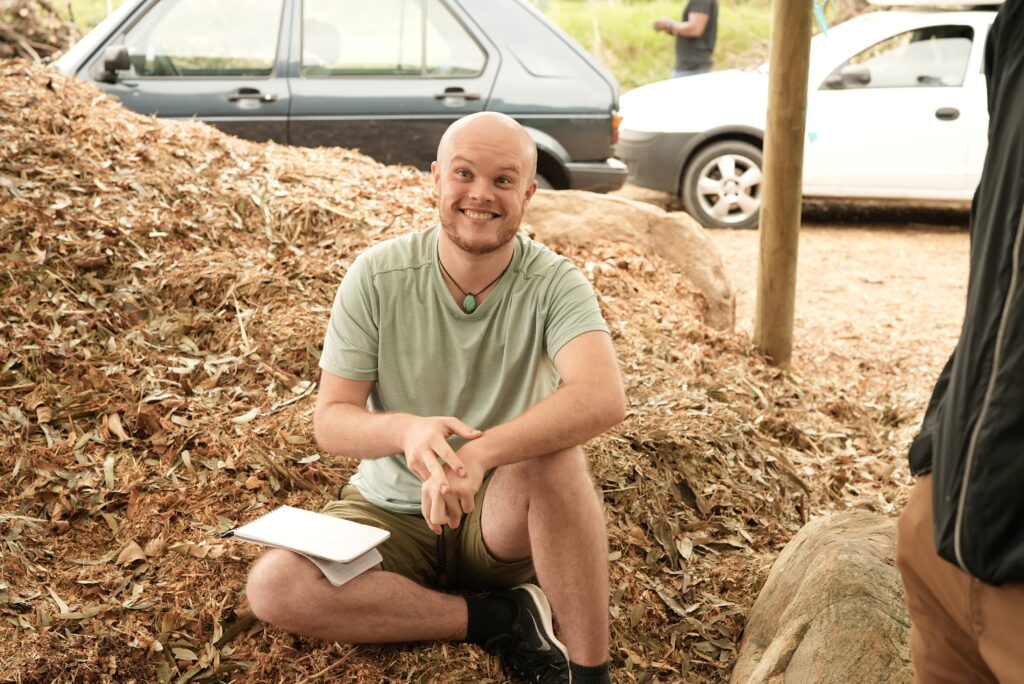
You also have SIT Global Master’s students who come to South Africa on one of their semesters. Do you think an experience here as part of a master’s program might help a student to move into their desired career field?
I think an experience for master’s students anywhere outside the U.S. is going to be enriching. What we see when students come here is this new way of learning. One of the unique things about SIT is that it’s changing how master’s programs and graduate programs are run. Graduate programs have always followed this very traditional way of learning that has remained unchanged for many, many years.
SIT is well-placed to change that because we have learning centers all over the world. Imagine the opportunities that exist in these countries, the networks that exist, and the exposure that the students are going to get. You can be at an American university doing a master’s program but all the faculty there might be Americans. On our Diplomacy and International Relations program, for example, students start in Washington, DC, where they may get an American perspective from American faculty. Then they go to Switzerland, where they’re going to be taught by different people, who also teach differently.
One of the unique things about SIT is that it’s changing how master’s programs and graduate programs are run.
Then when they come here, they are exposed to yet another way of learning. At the grad level, this prepares students for the real world because when you are out there working, you’re not going to be working with just people from the U.S., especially if you’re in the field of international relations. You’re going to have to learn how to talk to different people. So just by moving around in these different countries, in true SIT sense, we are exposing students to working with people internationally.
By Kate Casa
CAPE TOWN, South Africa – In dorm rooms around the United States there are colorful socks from a small Cape Town market stall. The socks aren’t the next big Gen Z internet sales crush. They are personal gifts, bought and shared with love from a generous South African couple who have hosted dozens of U.S. students in their warm and welcoming home since 2016.
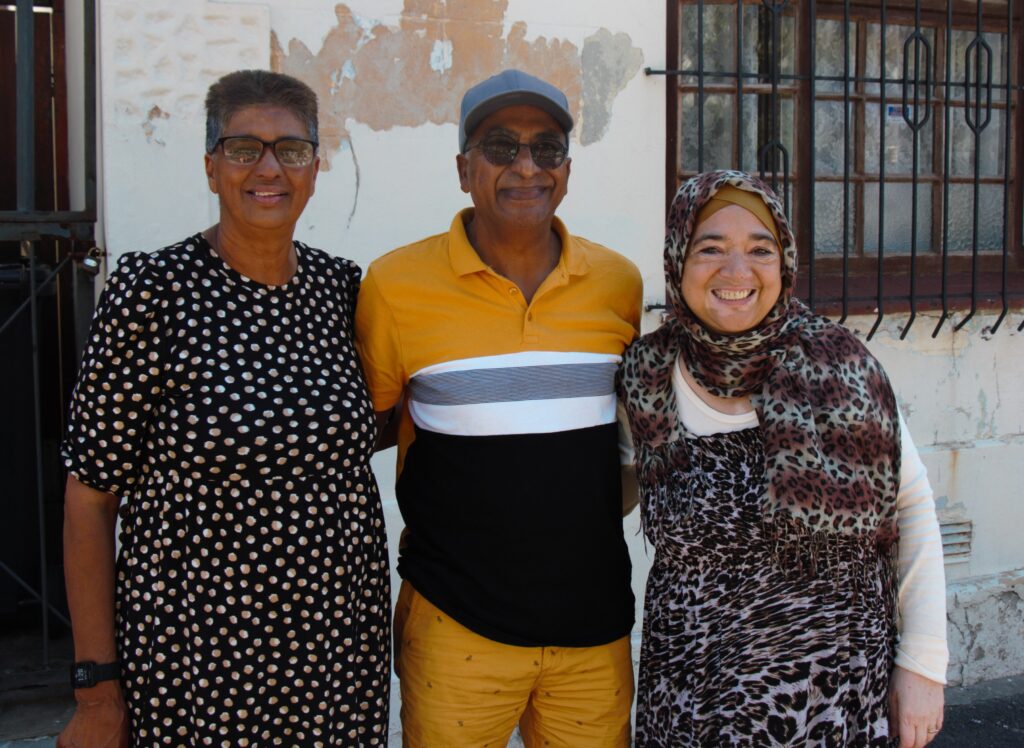
Uncle Ishmael and Auntie Shahida, as they are fondly and widely known, share their comfortable, two-bedroom flat with one or two SIT students each semester. In addition, Ishmael coordinates homestays with another 16 families around Salt River, a colorful Muslim neighborhood of Cape Town where residents stop to chat on their front steps and gather for Thursday evening worship and community at the local mosques.
During an SIT homestay, students not only share a family’s home and meals, they participate in family activities, go to the beach together, attend community events, and generally become part of the family’s daily lives. Students often return from their programs saying the homestay was one of the most impactful experiences, and many stay in touch with their homestay families for years and even generations after their programs end.
It touches my heart and brings a tear.
Ishmael
At Ishmael and Shadida’s home, the scrapbooks and stacks of greeting cards are a testament to the bonds the couple have developed with students whom they all seem to remember by name.
Shahida reads from one card, from Lindsay in 2016: “Thank you for opening your home and hearts to us … I enjoyed being a member of your family so much. Just the way you greeted us when we returned home from school with all the lovely hugs, cooked us delicious meals with love, and took us on many fun outings. I love Cape Town and I love your family.”
”It touches my heart and brings a tear,” says Ishmael.
“I want to hug them,” says Shahida.
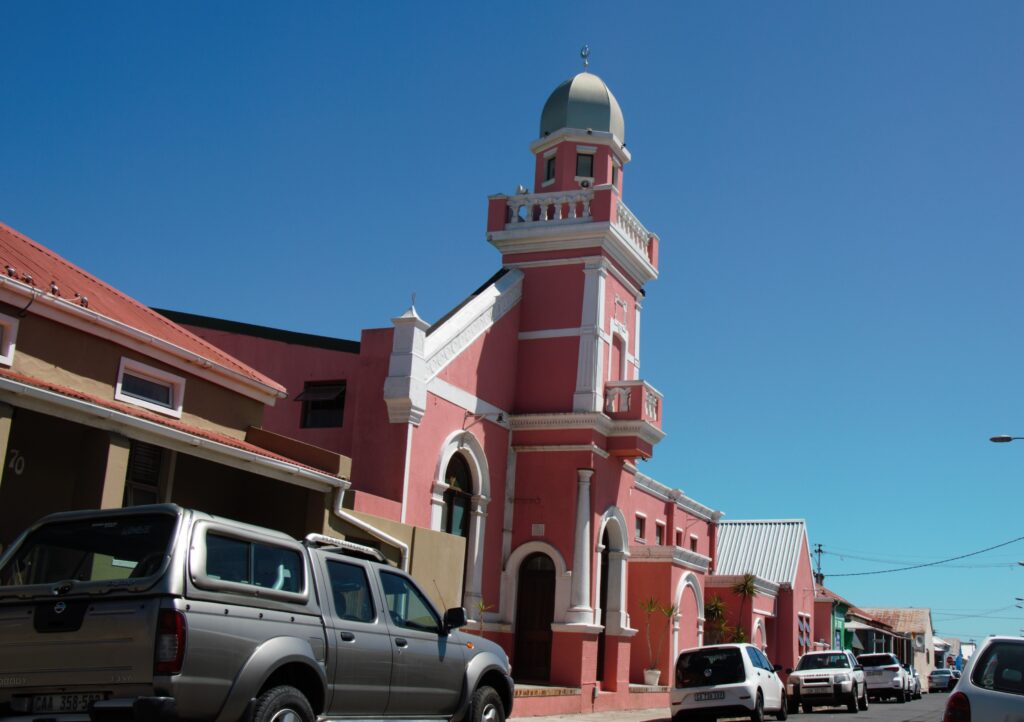
She continues, “We are with the students from the day they arrive until they depart. We welcome them at the airport and we see them off. And that’s the saddest part of it. I cry the whole night because each and every one of them has a special place in my heart.”
These socks have reached throughout the world.
Ishmael
And that’s where the socks come in. The couple likes to give their students parting gifts, which are often socks that they buy at the local market where Ishmael and Shahida sell corn. “These socks have reached throughout the world,” says Ishmael. “In fact, Auntie did the shopping today for socks for Rick, one of the master’s degree students.”
Ishmael and Shahida have typically hosted undergraduate students on SIT’s multi-country International Honors programs, which visit three countries over a semester. Recently, they have also opened their home to SIT graduate students like Rick Bentley, who was in South Africa studying for his master’s degree in sustainable development practice.
The kitchen is the heart of Ishmael and Shahida’s warm and welcoming home. There, Shahida serves up everything from a vegetarian version of mince curry to homemade rotis, to koe-sisters, a spicy Cape Malay pastry.
“I cook all types of food: South African food; I’ve tried to make some American food; food from all over the world. I also give students cooking lessons. I make my own spices, and I give students lessons on how to make coriander and whole cumin that you roast in the oven, and how to grind coffee so it’s nice and fresh,” she says.
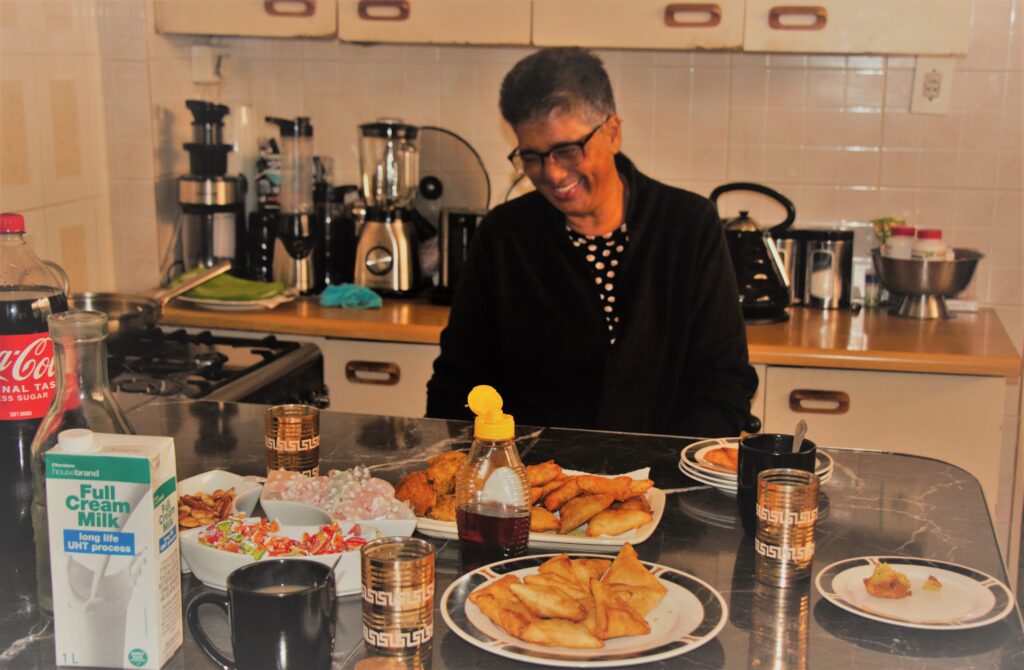
The food is clearly memorable; it is mentioned in dozens of thank you cards. One student even asked Shahida if she would come cook for their wedding.
But as much as Ishmael and Shahida work to make students’ stays as comfortable as possible, they also do not shy away from uncomfortable conversations. When they arrive, Ishmael said many students are unaware of South Africa’s political history and present-day challenges. On SIT programs, they confront the realities of the country’s history of apartheid and the legacy of that system today. They often visit Robben Island, where Nelson Mandela was held in prison for 18 years.
“It changes their whole mindset,” says Ishmael. “So we also try and talk to them about our childhood, how we grew up. We’ve lived through apartheid and new South Africa. My sister’s father-in-law was politically an activist, and he spent 14 years with Nelson Mandela on Robben Island. My brother-in-law was part of the Black Consciousness movement with another activist, Steve Biko. At the time I was still a teenager when they used to talk about all this. So I listened and took it all in. I didn’t know that 40, 50 years later, I would be meeting students who would want to know these things.”
New SIT programs for 2023 feature hip-hop in Ghana, diplomacy in South Africa, traditional medicine in Vietnam
School for International Training opens summer 2023 registration today with 39 extraordinary study abroad programs around the globe, including three new immersive opportunities in Ghana, South Africa, and Vietnam.

Ghana: Hip-Hop, Resilience, and Black Struggle examines how artists are using hip-hop to question traditional representations of Africa, imagine Africa’s future, and raise consciousness about globalization and (in)equality. In one of the most innovative countries in Africa, you will have the chance to study, engage, and perform with international hip-hop artists and activists such as Kojo Cue, Wiyaala, Cina Soul, M.anifest, Wanluv, Angel Maxine, Worlasi, and Koo Nimo. Excursions include Kumasi, the capital of the Ashanti Region and home to the biggest market in West Africa; Cape Coast, the first capital of Ghana and near two of the oldest sites of the transatlantic slave trade; and Tamale, where Islamic cultural practices flourish due to cultural influences from north of the Sahara. Earn six credits on this six-week program and participate in one of the most innovative study abroad experiences available today.
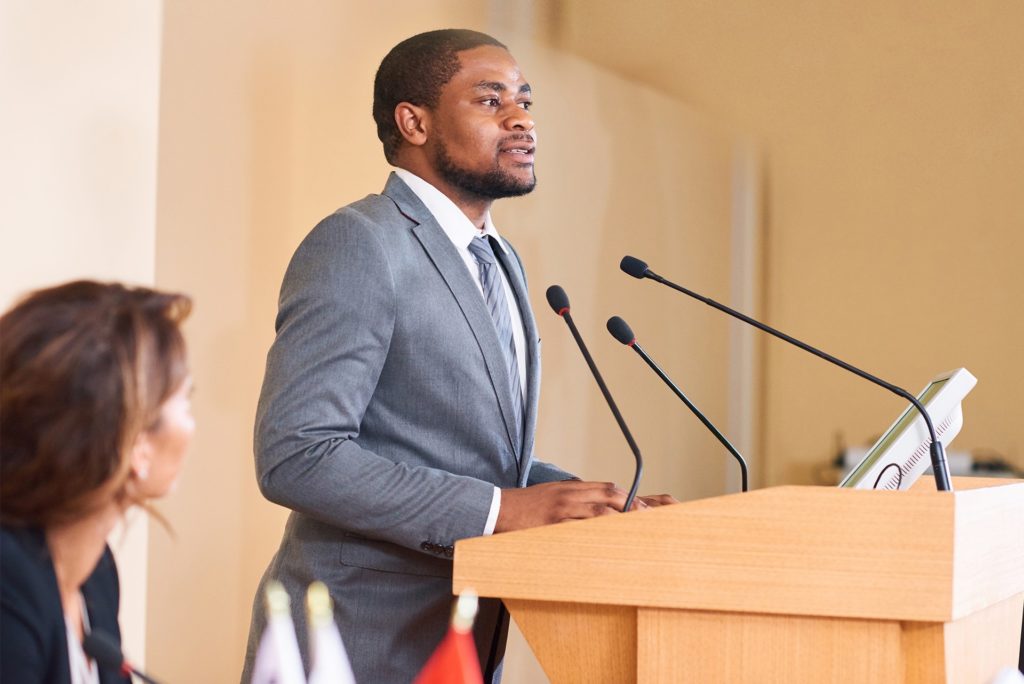
South Africa: Internship in Diplomacy, Politics, and International Relations is an exceptional, seven-week opportunity to explore career paths, meet diplomats and politicians, and enhance your understanding of non-western perspectives in the field of international relations. Your program base is Durban, one of South Africa’s most cosmopolitan cities with a rich fusion of African, western, and South Asian influences, and home to key historical figures like Albert Luthuli, the first African awarded the Nobel Prize for Peace, and Mahatma Gandhi. The core component of this program is a five-week internship with one of SIT’s partner civil society NGOs. These include the Africa Centre for the Constructive Resolution of Disputes, the Institute for Global Dialogue, Institute for Security Studies, and Centre for Conflict Resolution. On an excursion to Maputo, Mozambique, you’ll learn about the strong historical and political bonds between the two countries and the role Mozambique’s ruling party played in the liberation struggle against apartheid. You will also visit Johannesburg and close out this groundbreaking experience in Cape Town. Earn eight credits on this mind-opening, career-expanding summer opportunity.
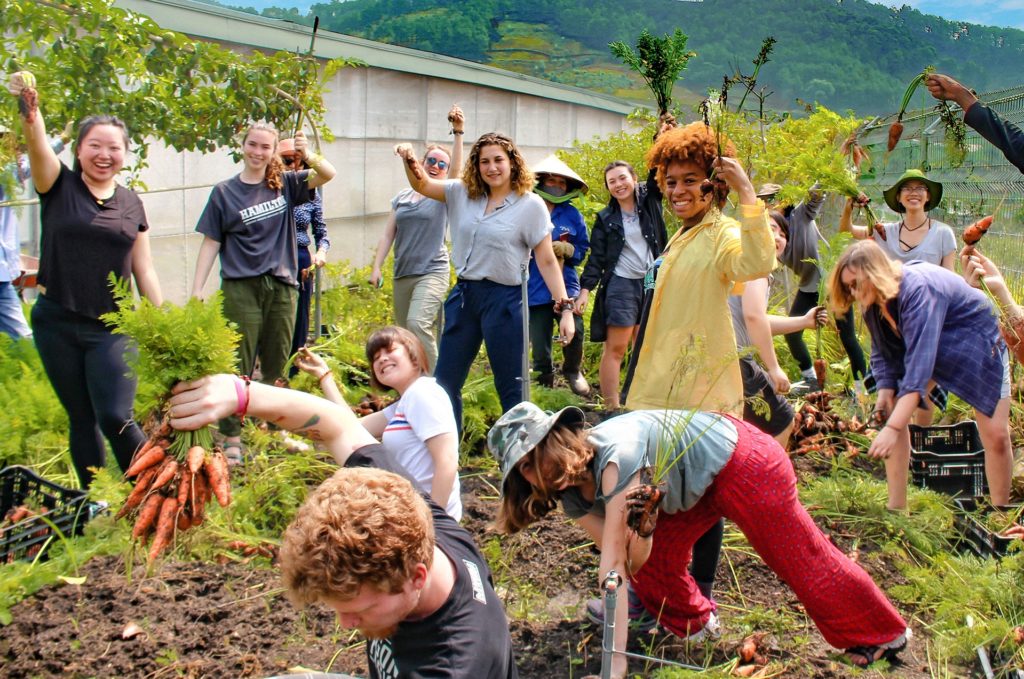
Vietnam: Traditional Medicine and Community Health provides an unparalleled look at the ancient yet flourishing practices of traditional Vietnamese and Chinese medicine. You will observe ethnic folk medicine practices, get an introduction to yoga philosophy and practice at a yoga training center, and visit a monastery to study the concepts of life and death in Buddhism, and participate in meditation sessions. Visit local public health and traditional Vietnamese medicine clinics in the Mekong Delta to compare rural community health practices to those in urban Ho Chi Minh City, the program’s base. Through visits with doctors, professors, and traditional medicine practitioners, you will gain a multidimensional view of healthcare and health delivery among diverse groups including marginalized and Indigenous populations. Choose to study either Vietnamese or Chinese language on this six-week, six-credit program that will broaden your understanding of medicine and enhance your career and academic prospects in the medical, health, NGO, or other fields.
These three innovative programs are among 39 immersive and virtual language and internship programs offered by SIT for the coming summer and available for registration through April 1, 2023. Click here to learn more about these and all of SIT’s “not your ordinary” program offerings.
Although SIT program delivery was modified in 2021, SIT Study Abroad and SIT Graduate Institute continued to provide life-changing international experiences for graduate and undergraduate students throughout the year.
Not surprisingly, the challenges brought about by COVID-19 meant that many of the most popular programs in each division were either hybrid or virtual. Nevertheless, students like Tiffany Padilla, who studied Tibetan online, found “immense value in experiencing a study abroad of any kind.”
Read “Insights from a virtual study abroad”
Top 5 SIT Graduate programs in 2021
Based on enrollment, the most popular SIT Graduate Institute programs in 2021 were:
1. Part-time hybrid MA in Sustainable Development
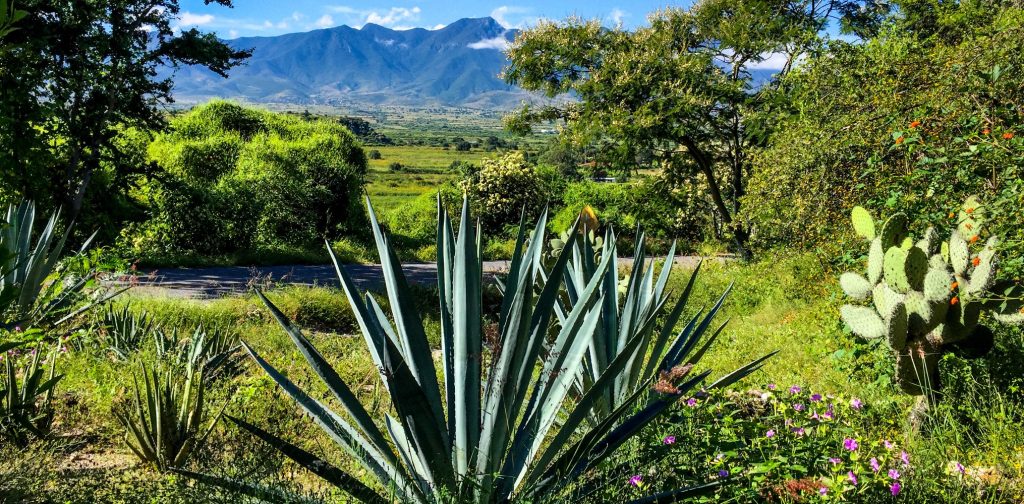
In this two-year program, students learn to support thriving communities and build skills in community development and social change. They work with their professors and cohort online, with brief residencies in Vermont and field courses in Nepal and Mexico.
Read Randal McCoy’s capstone paper, “Black Lives Matter”
2. Part-time hybrid MA in TESOL (Teaching English to Speakers of Other Languages)
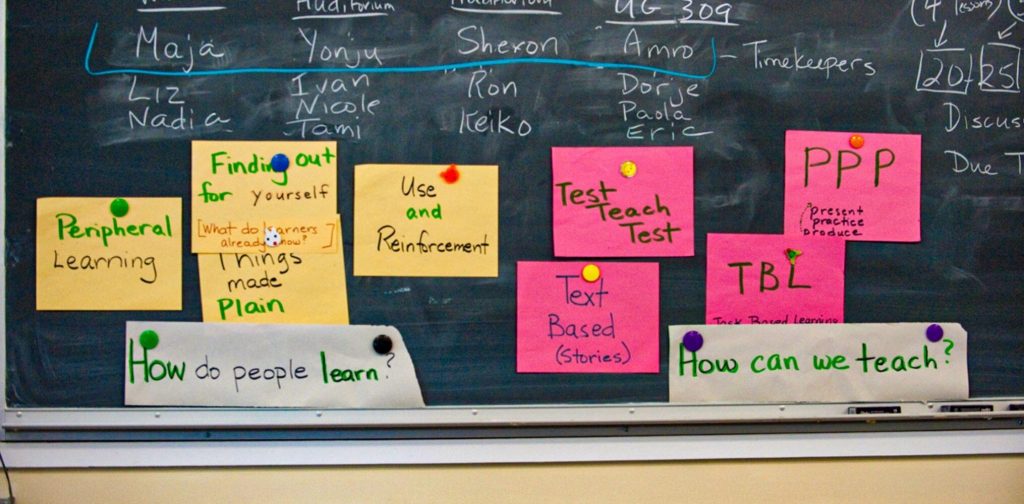
SIT is a national leader in TESOL training so it’s no surprise that this two-year program continues to rank among SIT’s most popular. Grounded in plurilingual pedagogy and led by experts in the field, the program provides students the opportunity to specialize in one of four subject areas: teacher training, plurilingual pedagogy, teaching refugees and displaced persons, or teaching young learners.
Find out more about plurilingual pedagogy
3. Part-time hybrid MA in International Education

In this two-year hybrid MA, students learn to lead education programs in communities around the world. The program features brief summer residencies on SIT’s scenic Vermont campus and includes electives focused on leadership, peacebuilding, language education, international development, and intercultural service.
Program chair Dr. Sora Friedman talks about her new book
4. Global MA in Climate Change & Global Sustainability

In SIT’s one-year Global Master’s programs, students study in a different country each semester and in most cases complete their final capstone anywhere in the world. Among our first and most popular of these global formats is Climate Change & Global Sustainability. With one semester each in Iceland and Tanzania, students gain the knowledge, skills, and global experience to address climate change and enhance the sustainability of environments and responsible human livelihoods. Alumni from this program have gone on to careers in public policy and NGO fields.
Climate Change alumna Danielle Purvis: ‘The ways of the world must change’
5. Global MA in Diplomacy and International Relations
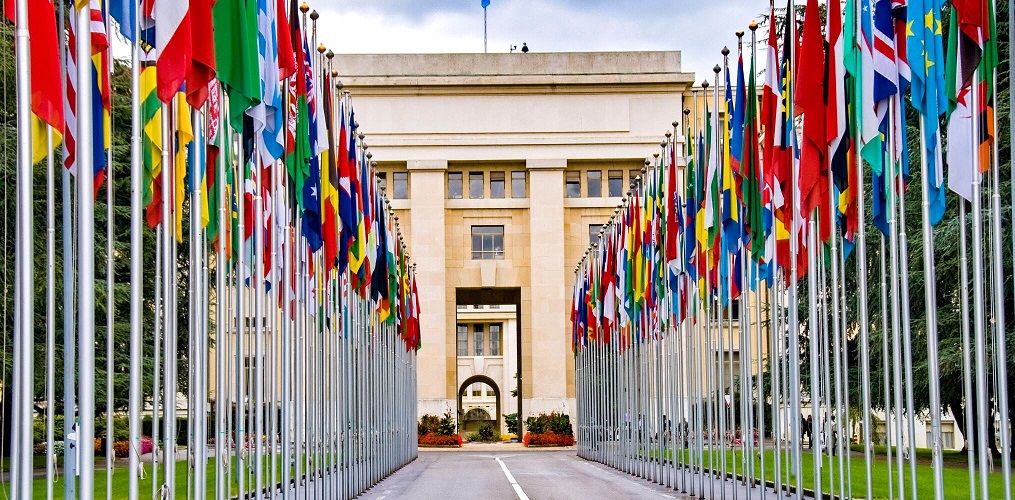
Students prepare for careers in international, regional, and global affairs or diplomacy to address some of the most critical issues facing the planet. This one-year program takes place in South Africa, Switzerland, and the United States for key points of comparison among U.S., European, and African perspectives as students learn how to function with the global political system.
Program chair Dr. Bruce Dayton: ‘We’re at a tipping point’
Top 5 SIT Study Abroad programs for 2021
Based on enrollment, the most popular SIT Study Abroad programs and countries in 2021 were:
1 & 2. Iceland
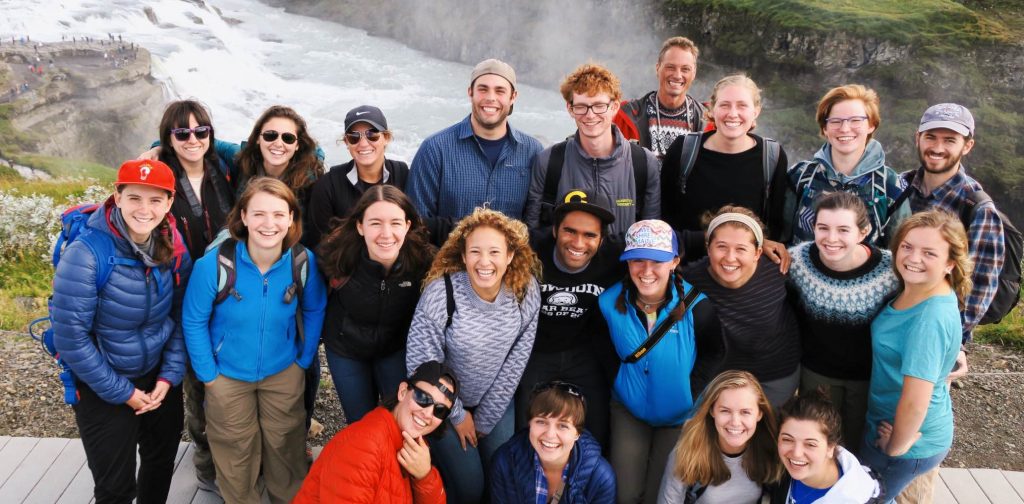
SIT Study Abroad’s two most popular programs in 2021 were both immersive experiences in Iceland. Students on our semester program, Climate Change and the Arctic, were drawn to the beauty of Iceland’s glaciers, volcanoes, coastlines and waterfalls. In that dramatic setting, they study climate models and carbon management with experts on the front lines of the fight against climate change.
SIT’s summer program in Iceland, Renewable Energy, Technology & Resource Economics, is similarly focused on climate and environment, attracting students interested in energy policy and renewable energy technologies.
3 & 5. South Africa
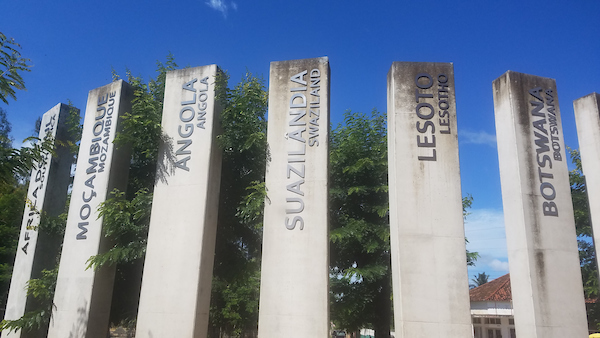
Summer and semester Virtual Internships in Diplomacy, Conflict Resolution, and International Relations ranked third and fifth respectively in 2021, preparing students for careers in human rights or global affairs. Both programs explore non-western perspectives on conflict resolution, human rights, international relations, and south-south diplomacy in cooperation with partners like the Africa Centre for the Constructive Resolution of Disputes (ACCORD), Africa’s largest conflict resolution NGO.
4. Kenya
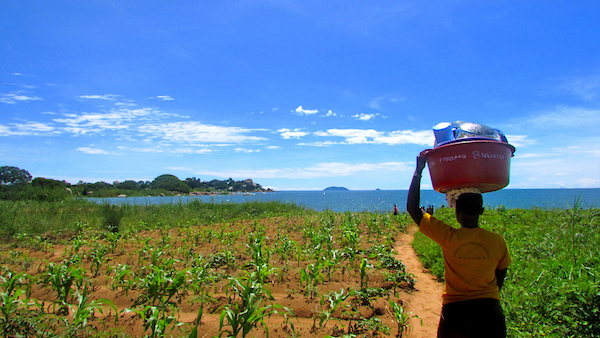
Another virtual internship in Africa ranked among our top 5. On our summer program Kenya: Virtual Internship in Public Health in the Tropics students have the opportunity to intern with a community or research organization, business, government agency, or NGO. This program is carried out in partnership with the Kenya Medical Research Institute, the Centers for Disease Control, and other organizations working on public health issues in Kisumu. (The semester version of this program was also popular, coming in sixth in our 2021 ranking.)
#1 Muse: Ecuador
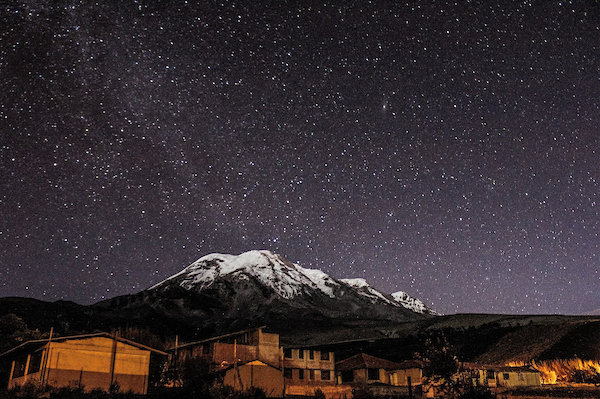
Last but not least, we would be remiss if we failed to include Ecuador in this list as the country that inspires some of the most prolific writing among our students and alumni.
I was captivated by the Ecuador’s immense, thriving biodiversity.
Zane Libke
This program has caused me to reflect a lot on what exactly the goal of ‘development’ is, on what changes I actually want to make in the world, and how one should go about making change.
Meg Edwards
Exploring the cloud forest for five days and our trip to the Amazon was like, ‘Someone pinch me, I think I’m dreaming’.
Halle Catalina Brown
Registration now open for nearly 40 SIT summer programs
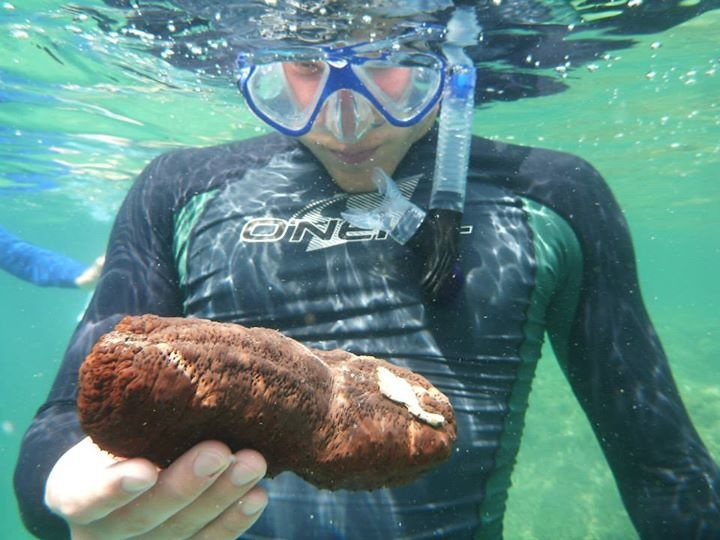
If you haven’t yet begun planning for next summer, this is a great time to start.
Registration opens Wednesday, Sept. 15, for 38 SIT summer 2022 study abroad opportunities. Included are new programs that encompass art and social change in Eastern Europe; hip-hop music and decoloniality in Senegal; climate change in Jordan; peace-building and human rights in the Balkans; human trafficking in the Netherlands; food security in Italy; epidemiology in Argentina; and urban design and social justice in Spain.
“SIT has historically expanded the frontiers of international education, creating global opportunities of learning and cultural immersion for thousands of students a year across all continents,” notes SIT Dean of Faculty Dr. Said Graiouid. “The summer 2022 portfolio maintains that tradition with programs that focus on social, political, economic and scientific arenas and in diverse historical periods and geographical settings.”
Students are challenged to embrace a human-centered, comparative approach …”
SIT’s immersive programs next summer will take place in sub-Saharan Africa, the Asia Pacific region, Europe, and the Middle East/North Africa.
SIT will also once again offer virtual internships that allow undergraduates to build invaluable professional and academic experience on a range of subjects. These include two Jordan internships, in counseling and humanitarian action, and in community empowerment and climate change; women’s rights in Cameroon; education and social change in Chile; sustainability in India; public health in Kenya; human rights in Serbia; diplomacy and international relations in South Africa; and development and gender in Vietnam.
Regardless of which program they choose, says Graiouid, “students are challenged to embrace a human-centered, comparative approach in which they engage with resources and the competencies needed for the development of the skills of critical literacy, intercultural communication, and intellectual polity.”
Alix Swann, an international studies major at Spelman College, did a virtual internship on the Chile program in fall 2020 in which she worked with a women’s collective that fights street sexual harassment. Alix’s task was to teach about U.S. laws and policies on sexual harassment in the workplace and digital sexual harassment.
“Before this internship, my viewpoint was solely from a U.S. perspective, and I now no longer try to relate everything to the U.S.,” she says.
Yardena Meyerhoff, a physics and astronomy major at Whitman College, also did the Chile program, interning with the Colegio de Profesoras y Profesores de Chile to conduct a comparative analysis of Chile’s standardized testing system and the effect of standardized testing on student learning and development.
“My meetings with my internship advisor were very organic and natural and would often go in fascinating and sometimes unexpected directions. Our conversations made me think about my own experiences with education growing up in Minnesota, and how education systems around the world suffer from similar inequalities,” Yardena recalls.
SIT’s virtual language programs have also been popular during the pandemic. Language options for summer 2022 include all levels of Arabic (from Jordan); Swahili (Kenya); Hindi (India); Nepali and Tibetan (Nepal).
New SIT programs for summer 2022 are:
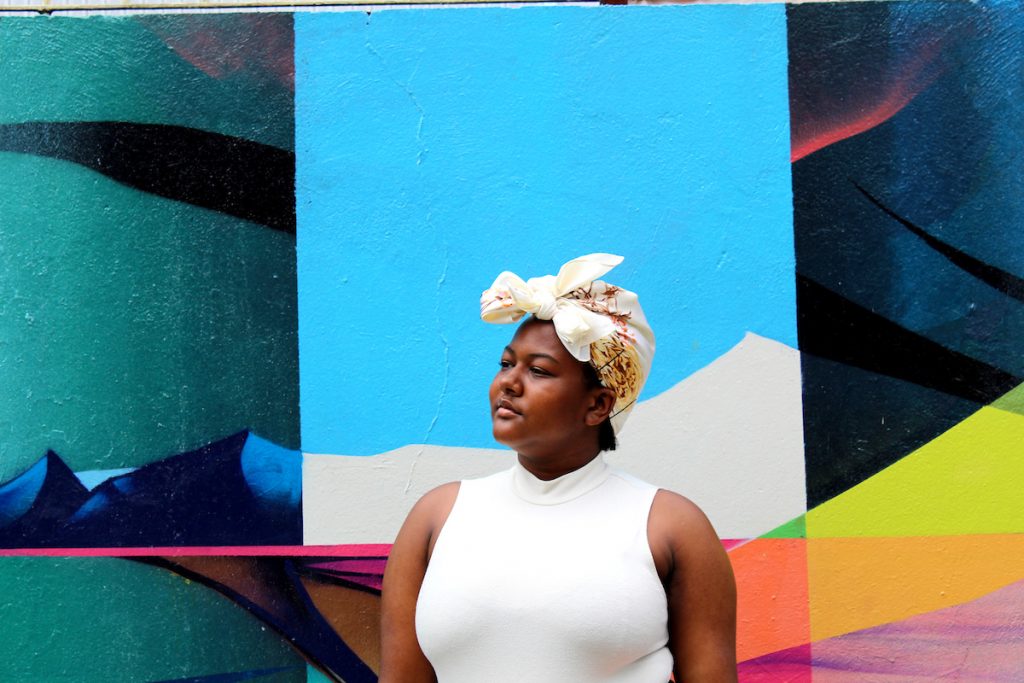
Argentina: Epidemiology and Healthcare Management—Through SIT’s close partnership with ISALUD, the nation’s top health university and think tank, examine urban epidemiology, health inequalities, and the challenges of managing health services and policies to expand access to healthcare.
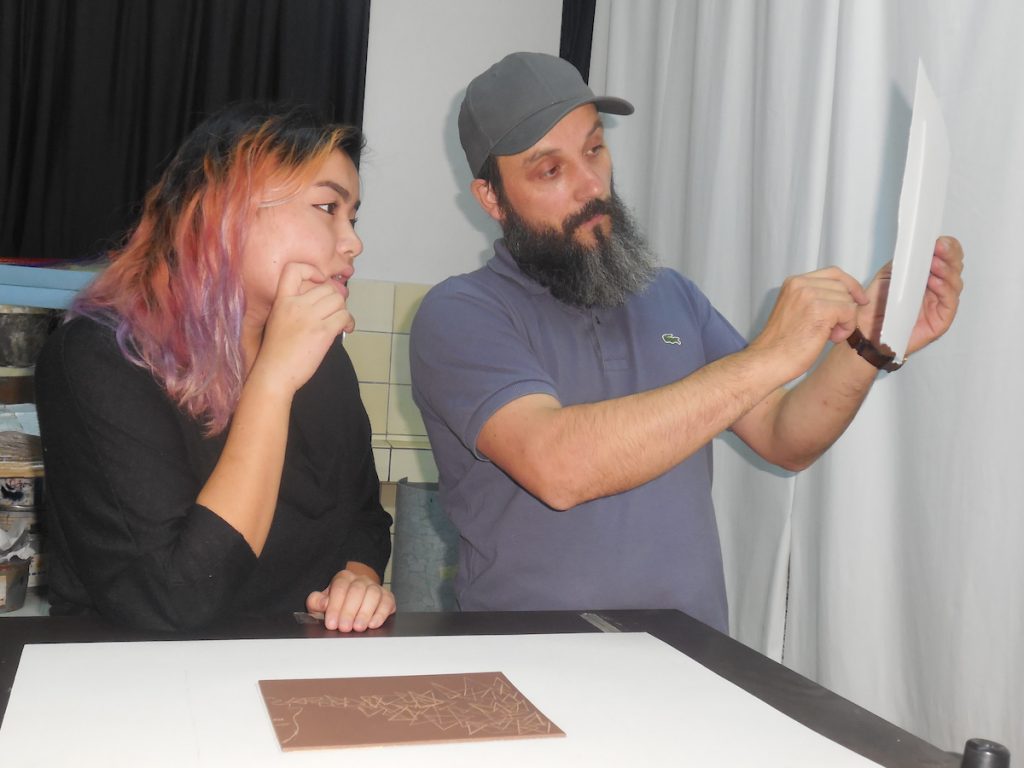
Czech Republic: Studio Arts—Explore photography, creative writing, or contemporary dance through an intensive arts workshop while examining debates around art, politics, and society.
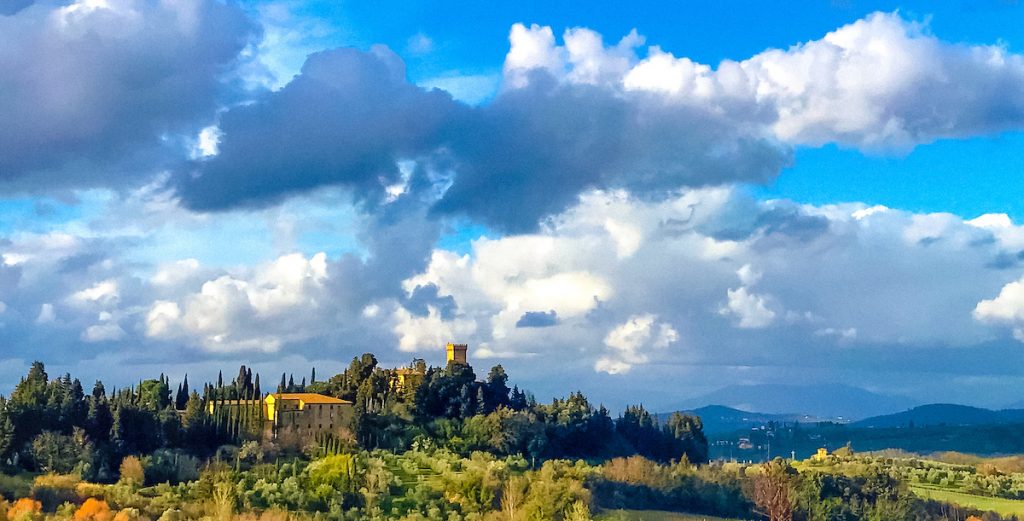
Italy: Food Security and Nutrition—Delve into sustainable agriculture on a Tuscan estate and explore how international experts are confronting challenges of food security, nutrition, and health.
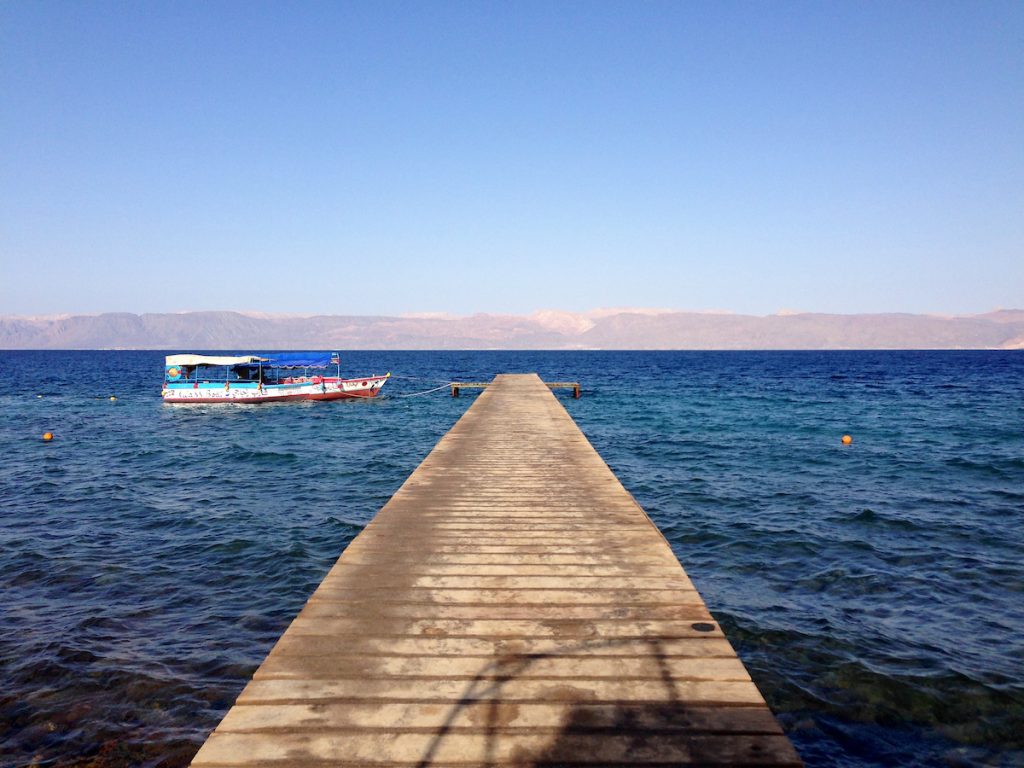
Jordan: Community Empowerment and Climate Change Internship—Gain professional experience with a UN or government agency or NGO working with youth and vulnerable groups on community empowerment and environmental sustainability.

Netherlands: Human Trafficking, Sex Trade, and Modern Slavery in Europe—Examine diverse areas of human trafficking and the sex trade, including the relationship between sex workers and broader societies.
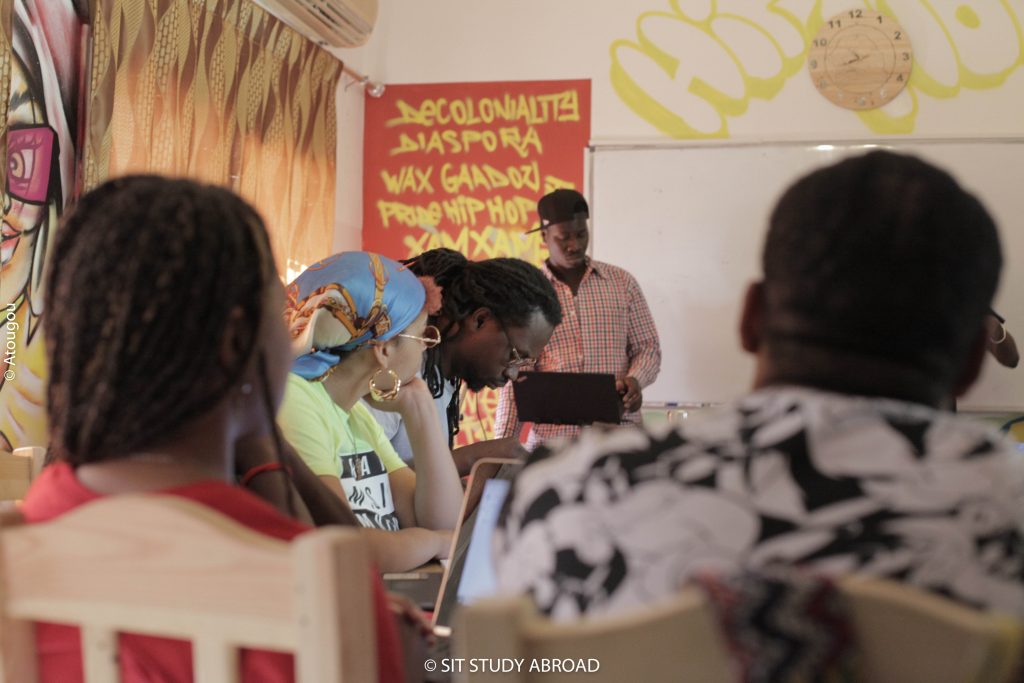
Senegal: Hip-Hop, Resilience, and Black Struggles—Examine how young Africans use hip-hop to question traditional representations of Africa, imagine the continent’s future, and raise consciousness of globalization and (in)equality.
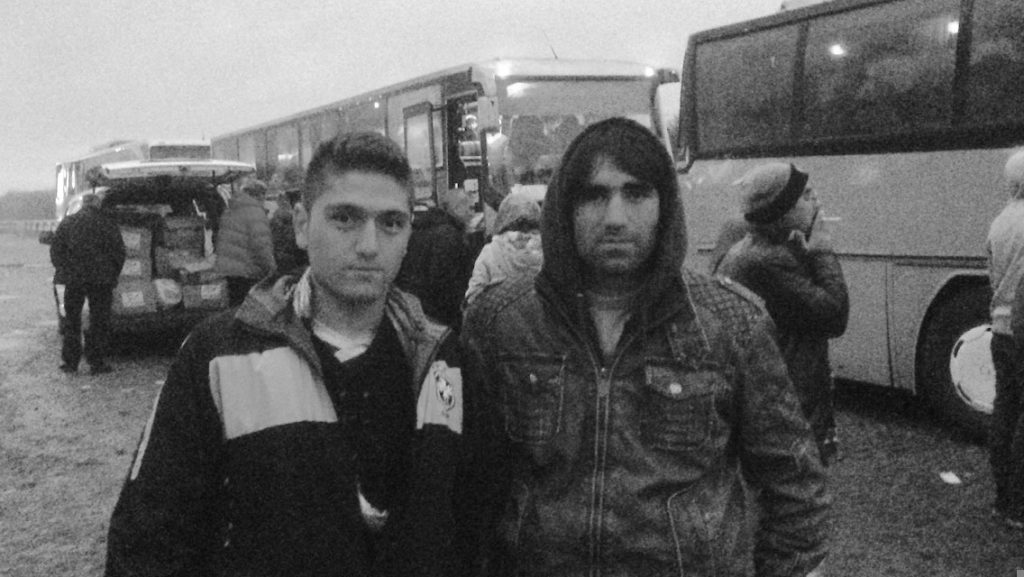
Serbia: Transitional Justice, Human Rights, and Memory Activism Internship—Look at justice, human rights, and memory in post-conflict societies and contribute to the work of an important organization with a meaningful internship.
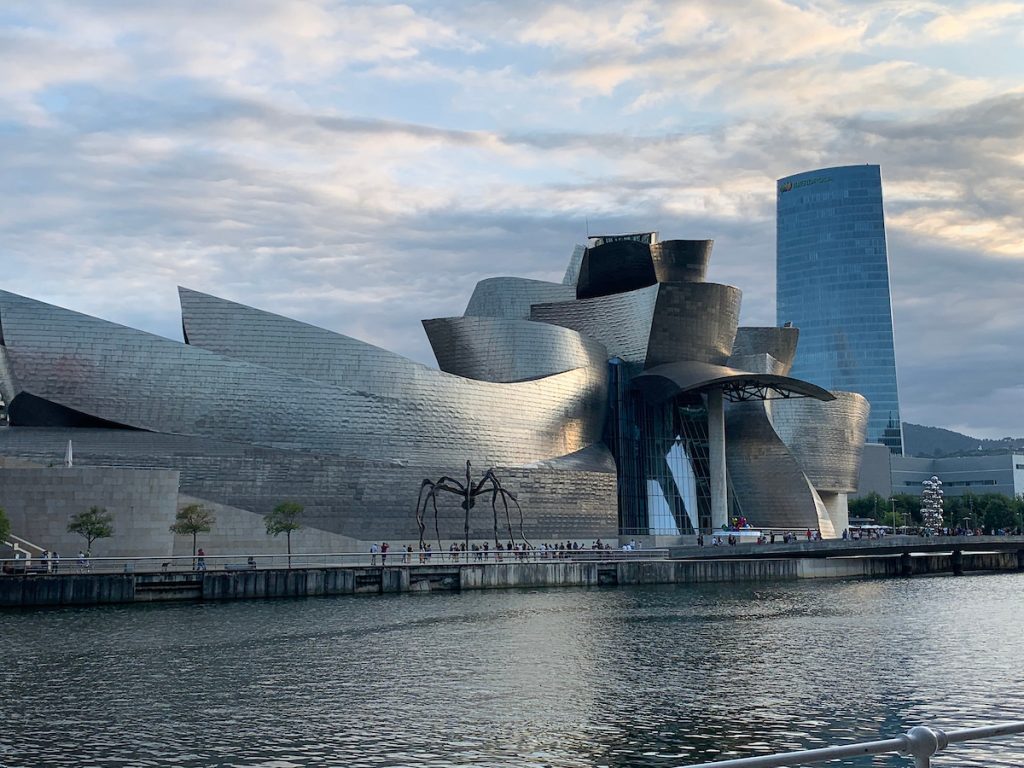
Spain: Sustainable Urban Development and Social Justice—Explore the approaches Spanish cities are taking to pursue sustainable urban development within a social justice framework.
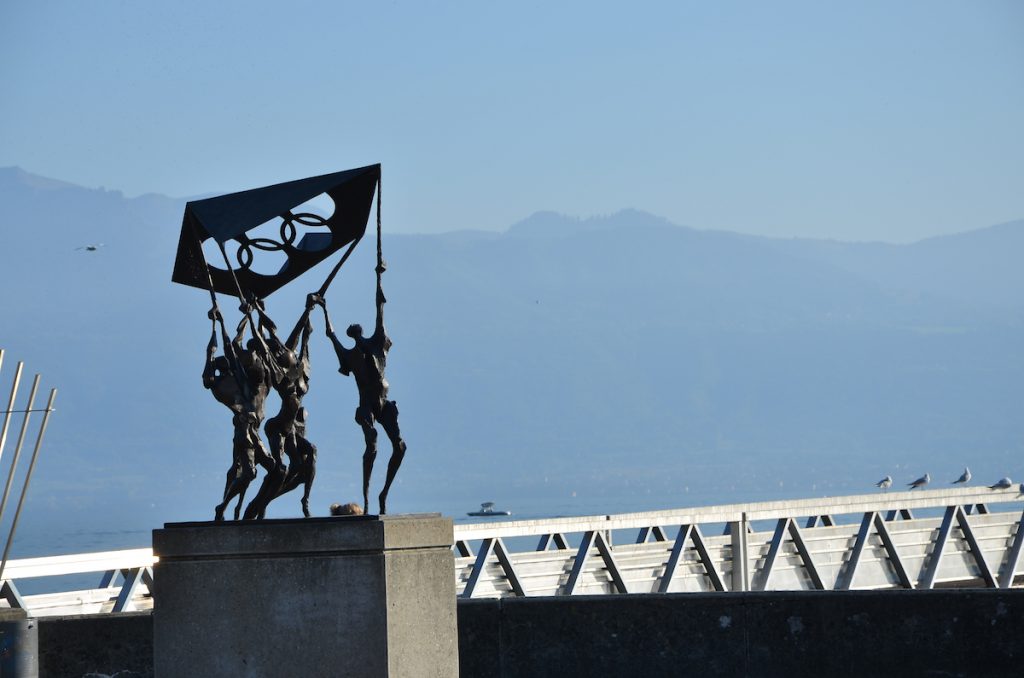
Switzerland: Global Health and Development Policy—Compare public health systems within the framework of international and sustainable development, humanitarian action, human rights, and social justice.
For more information about these and all SIT Study Abroad programs, visit www.studyabroad.sit.edu.
Launching this fall: MAs in Global Health Policy, Administration & Management; International Education; Diplomacy & International Relations
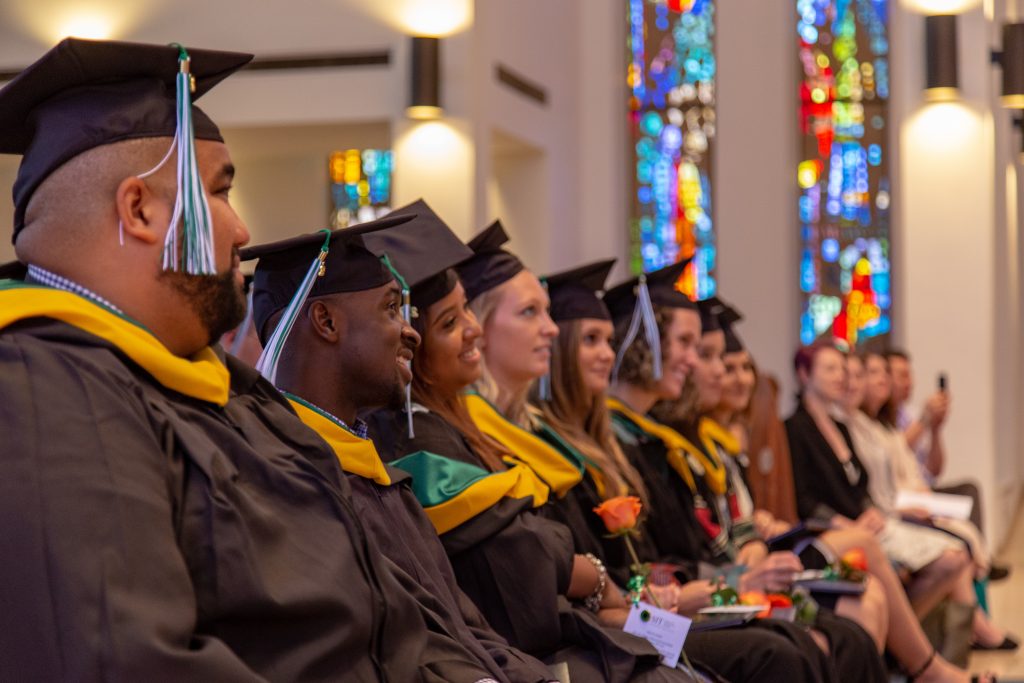
BRATTLEBORO, Vermont – School for International Training has received accreditation for three innovative new global master’s degrees in Diplomacy & International Relations; International Education; and Global Health Policy, Administration & Management.
The Vermont-based SIT Graduate Institute received its accreditation from the New England Commission of Higher Education, the regional accreditation agency responsible for colleges and universities in New England. The one-year Global MAs are delivered entirely abroad, with coursework in SIT centers around the world capped by students’ final practica, which, for most programs, may be completed in the U.S. or abroad.
The new MAs launch in September, led by faculty in the U.S., South America, Europe, the Middle East, Southeast Asia, and Africa, who will guide students through programs designed to develop leaders who can respond to some of the most critical global issues of our time, including global health crises, economic inequality, natural resource degradation, and political and ethnic conflict.
“These one-of-a-kind global degrees build on SIT’s nearly 90-year history of training the next generation of innovative, compassionate global leaders at a time when the world faces unprecedented challenges,” said SIT President Dr. Sophia Howlett. “Our dedicated faculty around the world have carefully designed these programs to help students learn to tackle urgent issues of the day in every corner of the globe and turn those skills into careers.”
The new degrees expand on SIT Graduate Institute’s stable of other accredited global MAs in Climate Change & Global Sustainability; Development Practice; and Humanitarian Assistance & Crisis Management, also based in cities around the world.
SIT also offers low-residency master’s degrees in Sustainable Development, Peace & Justice Leadership, TESOL, International Education, and a self-designed degree in Intercultural Service, Leadership & Management, putting SIT at the forefront of global institutions sending effective leaders, professionals and change-makers into the world.
Many of SIT’s graduates go on to work in high-level positions with organizations such as the United Nations, nongovernmental organizations, and major foundations across the globe.
To learn more about SIT Graduate Institute programs, visit our website. To learn more about the School for International Training and its programs for students at every age on every continent, see SIT’s website.
With an arts degree from the University of KwaZulu-Natal and knowledge drawn from her accumulated experiences in the NGO sector, Nonceba started her career as a project coordinator for the corporate social investment arm of the P.E.A.C.E. Foundation and Epi-Use Africa. She was head of education at the Field Band Academy where she was pivotal in crafting the pedagogical ethos. In addition, she has worked extensively at various rights-based civil society organizations, including Phoenix Zululand Restorative Justice Progamme, which delivers an innovative restorative justice curriculum for serving offenders. She has authored a paper through the Open Society Occasional Paper Series on the curriculum development of Phoenix Zululand. Nonceba serves on the boards of Phoenix Zululand Restorative Justice Programme and the Vukani Zulu Cultural Museum Trust.
Dr. Cheikh Thiam will lead SIT’s large and diverse portfolio of sub-Sahara programs
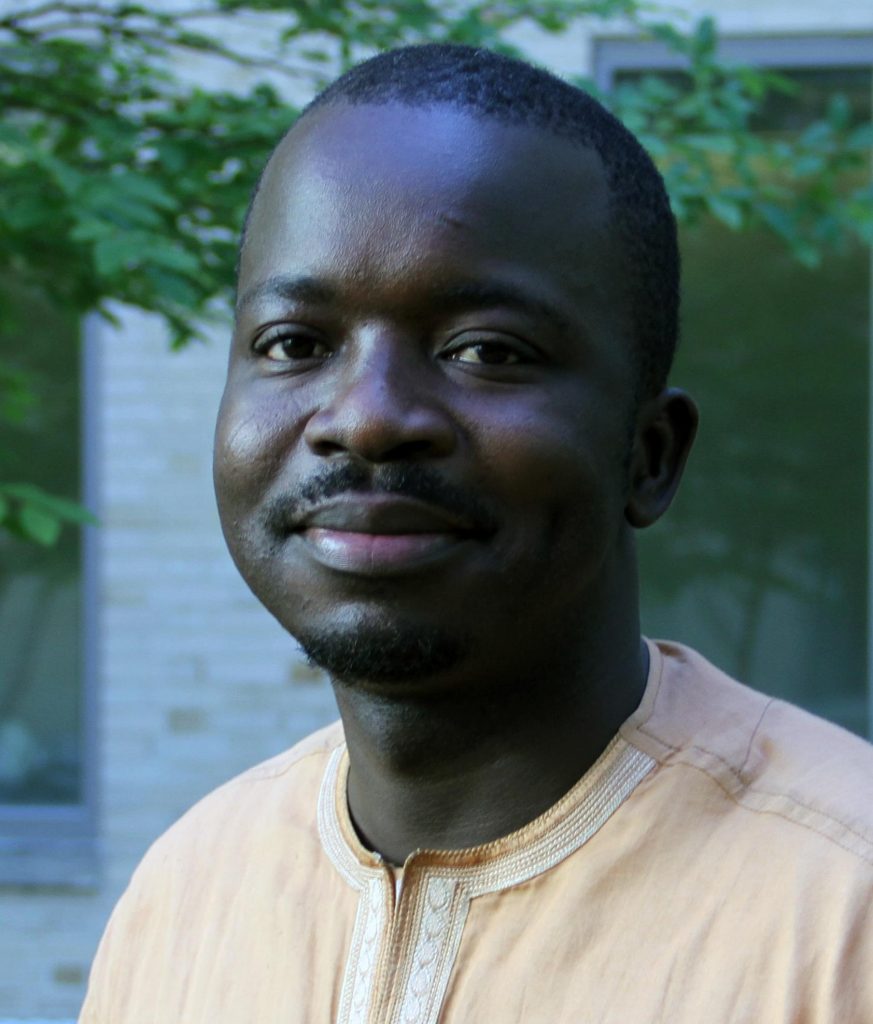
BRATTLEBORO, Vermont – Dr. Cheikh Thiam, academic director for SIT Study Abroad in Senegal, will become SIT academic dean for Africa South of the Sahara starting Jan. 1, 2020, School for International Training announced today.
Thiam co-leads SIT Study Abroad programs in Senegal focused on global security and religious pluralism, and designed a pioneering undergraduate program that explores how hip-hop artists and cultural influencers are redefining Africa’s future. “I am looking forward to taking on this expanded role at SIT, while drawing from my research examining collective imaginations of being and identity in Africa and the African diaspora in the colonial and postcolonial era,” said Thiam, who has directed study abroad programs in Senegal for the past 10 years.
As academic dean, Thiam will lead one of the broadest portfolios of programs in Africa of any U.S. institution. SIT’s multidisciplinary portfolio of accredited undergraduate programs covers nine sub-Saharan countries and encompasses subjects such as biodiversity and wildlife management, multiculturalism and human rights, health policy and social transformation, and even offers a journalism program. Several of SIT’s Global MA programs also have components based in Africa, including climate change in Tanzania, humanitarian assistance in Uganda, global health in Kenya, and international diplomacy in South Africa.
Cheikh’s outstanding scholarship and network of relationships across Africa and the United States, combined with his passion for student-centered study abroad classrooms, make him an outstanding addition to our leadership team.
— SIT President Dr. Sophia Howlett
Thiam brings to his new role a strong background in U.S. higher education. He has an MA and a PhD in comparative literature from Binghamton University, an MA in French from the University of Provence in Aix-en-Provence, as well as a BA from Université Cheikh Anta Diop in Dakar. He served as associate professor of African American studies, African studies, and French at The Ohio State University. He is the author of “Return to the Kingdom of Childhood: Re-envisioning the Legacy and Philosophical Relevance of Negritude,” published by Ohio State University Press in 2014.
Thiam also was the editor of Negritude Reloaded, a special issue of Journal on African Philosophy, an associate editor of Research in African Literatures, and has published widely in literature and philosophy journals such as Ethiopiques, West Africa Review, La Revue Africaine, La Revue du Graat, French Review, Research in African Literature, Dalhousie French Review, and Journal on African Philosophy. He recently completed a second book manuscript, “Epistemologies from the South: Negritude, Modernity, and the Idea of Africa.”
In announcing his appointment, SIT President Dr. Sophia Howlett said, “Cheikh’s outstanding scholarship and network of relationships across Africa and the United States, combined with his passion for student-centered study abroad classrooms, make him an exceptional addition to our leadership team.”
Thiam will join Howlett’s Council of Deans, a group that oversees SIT’s undergraduate programs, the SIT Graduate Institute, and SIT’s stable of more than 80 study abroad programs in Asia and the Pacific, Europe and the Middle East, Latin America, and the International Honors Program.
Thiam succeeds Dr. Daniel Lumonya, who has served as academic dean for the region since August 2015. Prior to that time, Lumonya was SIT academic director in Uganda. Lumonya completed his PhD in development sociology at Cornell University. “I have had the chance to work with Cheikh on our evolving programs in the region and I welcome the depth of experience he brings to this position,” Lumonya said.
Lumonya is leaving to pursue a career in research, teaching and community service from his country, Uganda. “I want to thank Dan for his dedicated work and stellar contributions to SIT, both as an academic director and dean,” Howlett said. “We will all miss him.”
Each year, the Experiment in International Living Digital Media Fellowship program chooses two outstanding journalism students or recent graduates to travel with Experiment programs around the world and capture participants’ experiences. This year’s fellows are Erinn Halasinski, who traveled with the France: Cultural Discovery program, and Jeanette Lam, who covered South Africa: Leadership and Social Change program. Both are SIT Study Abroad alumnae. Erinn went on Nicaragua: Youth Culture, Literacy, and Media and Jeanette took part in Morocco: Field Studies in Journalism and New Media.
Erinn Halasinski
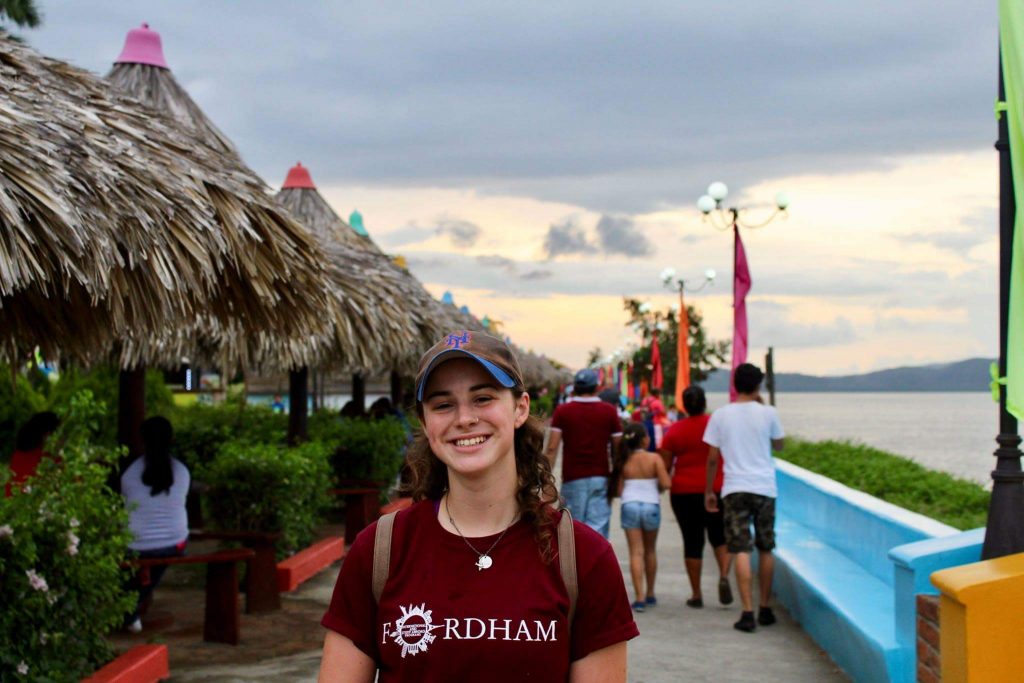
I’m super excited to experience a new country for me, with a camera, in the same way that the students are experiencing it for the first time.
Erinn’s interest in media began in high school when she began making videos with her friends for fun and for her track team. She continued learning about media and expanding her skills at Fordham University, where she graduated in May with a BA in Digital Technology and Emerging Media as well as New Media and Digital Design.
Erinn originally hadn’t planned to study abroad for a full semester because she didn’t think it would fit it into her coursework. However, she changed her mind after speaking with an SIT Study Abroad representative at a study abroad fair about the opportunities for immersion offered by a semester-long program.
She was drawn to SIT’s Nicaragua and Indonesia programs, but ultimately selected Nicaragua because of its focus on media and Spanish language immersion.
“I was able to study abroad in such a perfect program where I wanted to go and practice my Spanish,” she said. “It just fit so well.”
During her time in Nicaragua, Erinn created videos in English and Spanish, which she said helped her not only become more comfortable with her film skills, but also in working in a foreign culture with a camera. She also met Eli Laban, an alumnus of the program who had returned to Nicaragua as an Alice Rowan Swanson Fellow. Eli was later selected as a 2018 Digital Media Fellow and traveled to Japan with The Experiment. Seeing Eli’s work as a fellow on social media and learning about his experience is part of what prompted Erinn to apply for the fellowship.
“When the position came up on my alumni email, I had something to connect it to and could visibly see the work that he had done and that I could also do similar work,” she said.
Erinn has never traveled to France before and said she’s eager to discover the country alongside program participants.
“I’m super excited to experience a new country for me, with a camera, in the same way that the students are experiencing it for the first time,” she said.
In addition to exploring France, Erinn is particularly looking forward to her homestay. “My [host] parents are bakers. I can’t not be excited about that,” she said.
Following her fellowship, Erinn is joining the Jesuit Volunteer Corps and will spend two years in Belize volunteering with a nonprofit organization that works with children with disabilities. She’ll also continue building her media skills by helping the organization with its social media presence.
In the future, she hopes to experience and document different countries and cultures, especially places that aren’t frequented by tourists.
Jeanette Lam

[SIT] was a very transformative part of my college career because that was the first time I was surrounded by peers who were equally as passionate about art and social dialogue …
Jeanette recently graduated from the University of Richmond where she majored in Leadership Studies with a double minor in journalism and film studies. Although she had always enjoyed making videos with her friends and family, Jeanette says she got into professional film and media work by accident. The summer after her freshman year of college, Jeanette created a short, personal documentary about traveling to Taiwan with her grandfather.
“I didn’t even know it was a doc[umentary] at the time,” she said.
Jeanette submitted the video to a film festival and was accepted. After that, she was hooked. She took out a loan to buy her first professional video kit and paid it off over the summer by making videos. That fall, Jeanette embarked on her study abroad program in Morocco with SIT, which she chose because of its focus on media.
“[SIT] was a very transformative part of my college career because that was the first time I was surrounded by peers who were equally as passionate about art and social dialogue and these types of things,” she said.
During the semester, Jeanette completed weekly video assignments and created a short documentary for her independent study project, all of which she believes helped her grow as a filmmaker.
“I feel like that just really pushed me out of my comfort zone,” she said.
During her time in Morocco, Jeanette also learned to navigate living and working in another culture and connecting with people from different backgrounds, which she believes will help her support The Experiment participants.
“I know what it’s like to be in their shoes and how sometimes it can be frightening or uncomfortable, but ultimately really rewarding and eye-opening,” she said
She’s looking forward to documenting the arc of the students’ experiences over the course of their trip and how they grow throughout the program. In addition to working with the students, Jeanette is most excited about going on safari in Kruger National Park.
“That’s always been a dream of mine,” she said.
After her fellowship, Jeanette will move to Albany, New York, to work with Youth FX, which provides film and media production education to youth in underserved communities. Jeanette will be co-directing a filmmaking class in a juvenile detention center, which is similar to work she did in college. She also hopes to return to documentary filmmaking and work on both feature films and shorter video journalism projects.
“I know my heart is with documentary work and people-centric work,” Jeanette said.
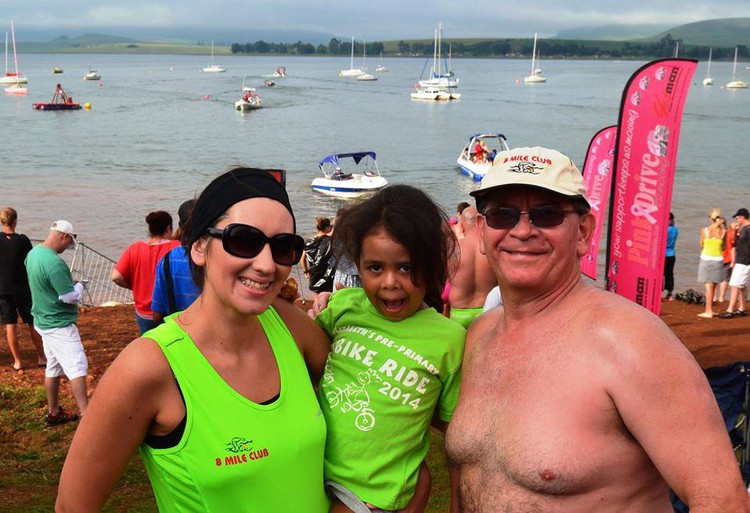
Luke Riley is a political science and communications student at the University of Maryland. This story was produced with the support of the SIT Study Abroad program South Africa: Social and Political Transformation, with additional reporting by Craig Bishop. It was originally published by GroundUp, a joint project of Community Media Trust and the University of Cape Town’s Centre for Social Science Research.
By Luke Riley
A legendary charity swimmer has thrown his rubber cap and goggles in the ring, signing up for a “wild swim” to promote alternatives to heavy minerals mining on South Africa’s pristine Wild Coast.
Stan Kozlowski, who has helped collect more than R12 million for conservation and other good causes over the years, has now joined an eclectic band of ocean swimmers to tackle a 22-kilometre stretch of the Pondoland Marine Protected Area (MPA).
The Wild Swim will take place over five days from 26 April, coinciding with Freedom Day and Workers’ Day.
Although The Wild Swim happens well before the annual sardine run, which attracts predators in great numbers, including sharks, a comprehensive safety plan has been put in place, restricting the event to eight swimmers.
Given the safety precautions, including shark shields, Kozlowski insists the “men in grey suits” hold little fear for him. “I’m afraid of the Sharks rugby players, not the animals themselves,” he quipped. “I have more concerns about crossing paths with a Portuguese man-of-war jellyfish, or an onshore wind blowing in a flock of blue bottles. Both of which can deliver a nasty sting.”
The swim from the Mzamba to the Mthentu estuary in the Eastern Cape province passes Xolobeni, an area which the Australian mining outfit Mineral Commodities Resources seeks to mine for heavy minerals. It is believed that its sand dunes contain titanium and other heavy mineral deposits worth an estimated R2.7 billion (US$185 million). These mining plans have divided the local community and drawn the attention of environmentalists who charge it will damage fragile ecosystems.
Amid this, Kozlowski believes The Wild Swim will highlight the area’s value to tourism and the need to protect the oceans that he loves dearly. He said he had witnessed how foreign-owned trawlers abused South Africa’s resources including in marine protected areas like the Pondoland. More must be done to stop this, said Kozlowski.
The grandad of six said he was equally concerned about the repercussions of heavy minerals mining and had little faith that those responsible would do anything to fix things.
The objectives of The Wild Swim have been endorsed by a growing number organisations as well as the co-founder of the Rand Merchant Bank, Pat Goss, a former director the Natal Parks Board (now Ezemvelo KZN Wildlife). Goss said heavy minerals mining would destroy the vast ecotourism potential the area holds, especially for traditional landowners in the area.
The seven other swimmers joining Kozlowski also have keen interest in environmental conservation. They include Arctic swimmers Marcelle Webber and Mervyn Bremner, who recently completed the bi-annual International World Ice Swimming Championships held in Russia.
Webber, who won three gold medals for South Africa, said: “The Ocean is my playground and I am a fierce guardian of her, ensuring she is kept pristine and glorious for the generations to come.”
The two, as well as Kozlowski, are no strangers to spending long spells in the water. Kozlowski established the 8 Mile Club in 2004 at the annual Midmar Mile, the world’s largest competitive open water swimming event, held at Midmar Dam in KwaZulu-Natal province in February. The Midmar Mile consists of eight events, each one-mile long. The 8 Mile Club is a group of swimmers who compete in all the events.
Kozlowski had for many years swum all eight one mile events, raising funds for the Wildlands Conservation Trust, now the WildTrust. Inspired by this fundraising feat, Bremner encouraged a group of 28 other swimmers to join Kozlowski.
In its first year the 8 Mile Club’s 28 members raised R130,000. Fifteen years later, the club numbered 240 members, and brought in R4 million (US$270 000) at the 2019 aQuellé Midmar Mile.
The money has gone to seven main charities, including the Childhood Cancer Foundation, Singakwenza Education & Health, and National Sea Rescue Institute, as well as 14 minor ones.
Now the 8 Mile Club is venturing into wilder waters, setting out to raise R250,000 by swimming the 22km stretch of Wild Coast earmarked for heavy minerals mining. The beneficiaries are two development agencies Africa!Ignite and Sustaining the Wild Coast (both with an interest in ecotourism), WildOceans (marine conservation), Pondoland MPA, and Roving Reporters’ associated environmental journalism training programme.
Plans to mine at Xolobeni date back more than 15 years, pitting members of the community against one another. This conflict is believed by many to have led to the murder of former Amadiba Crisis Committee chairman Sikhosiphi “Bazooka” Rhadebe, in 2016.
In November 2018 the Pretoria High Court ruled that before mining could take place in Xolobeni, the community residing on the land must give consent that is free, prior and informed. The Department of Minerals and Energy is appealing against the ruling.
You can read more about The Wild Swim at Roving Reporters.
Suzanne has been teaching conflict transformation, social justice, cross-cultural communication, and management courses at SIT for 17 years. She served as SIT’s first ombudsperson, bringing groups together, facilitating dialog circles for conflict resolution, and mediating one-on-one disputes. She has also taught online global peacebuilding, conflict analysis, conflict Interventions, and restorative justice practices to international students in an SIT certificate program.
For more than 20 years, Susie has led workshops and trainings for peacebuilders in conflict and post-conflict zones in Iraq, Kosovo, Macedonia, Bosnia, Rwanda, Sri Lanka, Israel, and Palestine. She has also led trainings for youth from Northern Ireland, Cyprus, Iraq, Jordan, and the United States. She served in the office of Senator Nick Petris, in Oakland, California, as an aide and advocate in the most economically depressed city in the wealthiest state in the union. In this role, she worked on legislation to create universal healthcare and represented the senator in the district for the 10 months each year that he was in the Capitol. Continuing her work in advocacy, Susie was the developer and director of Jardin de Maestros, a program to create pathways for students of color to become teachers in the very districts in which they were raised and have their roots. She was a teacher and trainer for years in Madrid, Spain; Dijon France; Florence, Italy; Porto and Lisbon, Portugal; Jenin, Palestine; and Pohnpei Island in the Federated States of Micronesia and was the associate director of world studies at Marlboro College. Currently, she is the director of the Greater Falls Community Justice Center in Southern Vermont.
Married to a Dane, Susie spends her summers in Denmark with her husband and young son. When not working and mothering, Susie enjoys vegetarian cooking, reading with her son, picking fresh tomatoes from her garden, swimming in the summer, and Nordic skiing in the winter.
Dr Tatsushi Arai is a peace researcher and conflict resolution practitioner with more than 20 years of international experience. He is an associate professor at Kent State University’s School of Peace and Conflict Studies in Ohio. Previously, he taught international relations at the National University of Rwanda in the aftermath of the 1994 genocide, and peacebuilding at School for International Training. Dr Arai has worked extensively as a United Nations adviser/consultant; independent mediator; designer of peacebuilding initiatives; and conflict resolution trainer across Asia, sub-Saharan Africa, and the Middle East, as well as in the United States. His latest activities include training Syrian and Lebanese government and civil society professionals in mediation skills; working with Nigerian government agencies and traditional leaders to establish a sustainable platform of reintegration and reconciliation support for rehabilitated former Boko Haram members; providing an advisory role in Rwandan initiatives for community-based healing; empowering Burmese civil society actors to rebuild relationships between Buddhist and Muslim communities in western Myanmar;and carrying out problem-solving workshops on the Taiwan Strait and on East Asia’s reconciliation challenges. Dr Arai holds a PhD in conflict analysis and resolution from George Mason University in Virginia and is the author of many publications including Creativity and Conflict Resolution: Alternative Pathways to Peace (Routledge). He is a Japanese citizen and currently lives with his tri-national family in northeastern Ohio. For more information about Dr Arai’s publications and peacebuilding initiatives, please visit: https://works.bepress.com/tatsushi_arai/
Dr. Bruce Dayton has been active in peacebuilding and conflict transformation work for more than 20 years as a practitioner, a researcher, and an educator. His work focuses on political leadership, the management of intractable conflicts, and the role that intermediaries can play in transforming them.
Dr. Dayton’s previous appointments include associate director of the Moynihan Institute of Global Affairs, research co-director at the Program for the Advancement of Research on Collaboration and Conflicts, and research professor, all at the Maxwell School of Citizenship and Public Affairs at Syracuse University. He also served for six years as executive director of the International Society for Political Psychology and as associate at the Center for Policy Negotiation in Boston, Massachusetts, where he designed policy dialogues on pressing public policy controversies.
See Dr. Dayton’s list of publications
Graduate Courses Taught
Introduction to Peacebuilding
Foundations in Diplomacy and International Relations
Applied Leadership
Negotiation, Mediation, and Dialogue
Conflict Analysis
Program Monitoring and Evaluation
Advanced Concepts in International Education 2
Select Publications
Dayton, B. W., Kriesberg, L. (2022). Constructive Conflicts: From Emergence to Transformation. Lanham: Rowman and Littlefield.
Dayton, B. W., (2019). From Peacebuilding to Constructive Conflict Management: Reconsidering Interventions Under Conditions of Intractability. In M. F. Elman, C. Gerard, G. Golan and L. Kriesberg (Eds.), Overcoming Intractable Conflicts: New Approaches to Constructive Transformations (pp. 351-366). Lanham: Rowman and Littlefield. 351 – 366.
Dayton, B. W., (2019). Collaboration, Conflict, and the Search for Sustainable Peacebuilding. In C. Gerard and L. Kriesberg (Eds.), Conflict and Collaboration: For Better or Worse (pp. 182 – 194). London: Routledge.
Dayton, B. W., and Kriesberg, L. (Eds.). (2017). Perspectives on Waging Conflicts Constructively: Principles, Cases and Practice. Lanham: Rowman and Littlefield.
Dayton, B. W., and Kinsey, D. (2015). Contextual Meaning. In G. Golan, S.U. Yang, and D. Kinsey, (Eds.), International Public Relations and Public Diplomacy: Communication and Engagement (pp. 267 – 278), New York: Peter Lang.
Cuhadar, E. and Dayton, B. W., (2012). Oslo and Its Aftermath: Lessons Learned from Track Two Diplomacy. Negotiation Journal, 28 (2), pp. 155-180.
Dayton, B. W., and Kriesberg, L. (Eds.). (2009). Conflict Transformation and Peacebuilding: Moving from Violence to Sustainable Peace. London: Routledge.
Cuhadar, E. and Dayton, B. W., (2011). The Social Psychology of Identity and Intergroup Conflict: From Theory to Practice. International Studies Perspectives, 12 (3), pp. 273- 293.
Hermann, M. and Dayton, B. W. (2009). Transboundary Crises through the Eyes of Policy Makers: Sense Making and Crisis Management. Journal of Contingencies and Crisis Management, 14 (4), pp. 203-213.
Dayton, B. W. (2004). Managing Crises in the Twenty-First Century. International Studies Review 6 (1), pp. 165-194.
Select Presentations
Dayton, B. W. (January 23, 2021). Foundations for Global Peace: Possibilities, Obstacles, and Way Forward [keynote address]. Principal Foundations for Global Peace. Ministry or Research, Technology and Higher Education Jakarta, Indonesia
Dayton, B. W. (annually February 2015, 2016, 2017, 2018, 2019, 2020). Leadership in Times of Crisis [chief trainer]. Hubert Humphrey Enhancement Workshop. Bureau of Educational and Cultural Affairs, U.S. Department of State
Dayton, B. W. (annually, 2018, 2019, 2020, 2021). Leadership, Conflict Management, and Organizational Change [training]. Leaders Advancing Democracy (LEAD) Mongolia Program, U.S. Department of State / World Learning, Washington, DC
Dayton, B. W. (December 4, 2015). Trends in Peace, Conflict and Global Civil Society [presentation]. The US-Middle East Partnership Initiative (MEPI), U.S. Department of State, Istanbul, Turkey
Dayton, B. W. (March 9-13, 2015). Organizational and Interpersonal Conflict Management: A Constructive Conflicts Approach. MPE Annual Conference, Office of Medical Services, U.S. Department of State, Lisbon, Portugal
Dayton, B. W. (June 9 – 15, 2014) Crisis Management: The Perspective from the U.S [Conference presentation and training]. Chinese Academy of Governance, Beijing, China
Research Interests
Conflict analysis and transformation
Negotiation theory and practice
Leadership decision-making
After graduating with a degree in anthropology from the University of Cape Town, Nic worked as a photographer in commercials, photo-journalism, and fine art. His personal work includes long-term research-based projects focused on society, history, migration, memory, and identity. Of special interest is the way in which the lived experiences of ordinary people are shaped by, or interact with, larger political and economic forces. His work has been exhibited and published, and he has received various accolades and grants. Moving back to South Africa in 2014 after spending a few years living in Spain, Nic became a partner in a local Cape Town mapping company, researching, designing, developing, and retailing South African travel maps both locally and in Europe. He is passionate about Africa and has a keen interest in sustainability, economic development, and social justice.
Dr. Szántó received her PhD in social anthropology in 2015 from the University of Pécs in Hungary. Her PhD dissertation was based on long-term fieldwork with polio-disabled people in Sierra Leone. A migrant herself, Dr. Szántó has built a professional career in France and Hungary. Beginning in 1998, she participated in the Hungarian post-socialist democratization process as the founder and leader of the Artemisszió Foundation, a local NGO based in Budapest. Under her leadership, the organization has grown to be a focal point for intercultural dialogue and intercultural learning in Hungary. Its intercultural community offers a safe space of encounter and mutual learning for forced and voluntary migrants and Hungarians interested in making Hungary a more inclusive place. As the president and one of the part-time operational directors of Artemisszió, she overviews the organization’s training and migration-related activities.
She is the author of a dozen scientific articles. Her book, Politicizing Polio in Sierra Leone, appeared in 2020. She is also the co-author of several anthropological documentary films. She teaches anthropology at several Hungarian universities. Her research focuses on urban anthropology, migration and social movements, and the intersection of international development, social justice, and health.
Carolina holds a five-year degree in arts from the University of Buenos Aires and a postgraduate degree in contemporary cinema and theater. She became involved in the field of international education in Argentina when it was a little explored field in the country and specialized in the design of materials for cultural immersion in multicultural contexts. Her interest in intercultural education led her to design study programs for various universities and study abroad institutions from the United States, focusing on the area of Social Studies. In 2005, she started her pedagogical involvement with the International Honors Program by implementing the first IHP program in Argentina: Cities in the 21st Century; and in 2012, she designed and implemented the Health and Community program. Her approach to the field of international studies allows her to deepen and unify her passion for culture, arts, and politics with the field of intercultural education, and she feels very fortunate to be able to share that passion with the students, as well as awakening their curiosity and desire to learn, all in a context of mutual respect and understanding.
Dr. Vu Cong is the deputy director of the Institute of Population Health and Development. He was previously director of the Family Health Research Center, lecturer at Hanoi Medical School, program officer with the United Nations Fund for Population Activities, and program officer with Family Health International. Currently, he is leading several HIV/AIDS research and intervention projects in Vietnam that target most-at-risk populations and implementing an HIV prevention project targeting young Vietnamese soldiers completing mandatory military service. He obtained his medical doctorate from Hanoi Medical School in 1993 and a master’s of public health at Brown University in 2005. He is also a founder of the Vietnamese Society for HIV/AIDS Medicine and a member of the Vietnamese Public Health Association and American Public Health Association.
Nicole has worked closely with SIT since 2011, coordinating multiple IHP global comparative programs including Health and Community, and Cities in the 21st Century. Nicole recognizes the pedagogy of IHP as closely aligned to her own passionate commitment to the exploration of her country through narratives that too often go unheard, bringing to life an ethos of community in her work, which she brings to her field programs. She is part of the collaborative leadership team for SEED, an award-winning nonprofit in Cape Town that teaches resilience through permaculture practices, engaging the green economy, and developing skills for social enterprise. Nicole holds a diploma in culinary arts and accreditation as a South African cultural heritage tour operator. She has traveled extensively throughout South Africa as well as neighboring African countries and brings a wealth of experience and insight into both the historical and contemporary nuances that shape life in South Africa today.
she/her/hers
Dr. SherriLynn Colby-Bottel received her PhD in cultural anthropology from the University of Virginia in 2012, and a BA in anthropology and an MA in music, with distinction, at California State University, Fresno. From 2005 to 2012, with support from the National Science Foundation and the University of Virginia Faculty Senate Fellowship Award for Scholarly Achievement and Excellence in Teaching, she conducted ethnographic research on disaster recovery, nonprofits, urban traditions, authenticity and sincerity in the local production of music, and community-based musical activities in New Orleans, Louisiana. Her research explored issues highlighted by disaster and recovery: how racial inequities align with health disparities, how the built environment and social policy act as determinants of recovery, and the vital role of community in one’s ability to achieve well-being. Dr. Colby-Bottel has worked and volunteered for several nonprofit organizations in the last decade while also researching how nonprofit organizations retain and reward labor. She has worked in higher education for more than 25 years as both faculty and administrator in four distinct university settings. She has been with SIT since 2011.
Courses Taught
Select Publications
Colby-Bottel and Handler. (2021 online, 2022 to print). Making the Scene and the Making of a Scene: The Loose Marbles on Royal Street in Post-Katrina New Orleans. Anthropology and Humanism. https://doi.org/10.1111/anhu.12354
Lanning, Colby-Bottel, Sakash, and Hagos. (2018). Humanizing High Impact Practices: Leveraging Learning Communities. Global Impact Exchange, Diversity Abroad, Special Issue on High Impact Practices, Fall 2018, pp. 28
Colby-Bottel, S. (2021). Review of Dr. Gregory Button’s “Disaster Culture: Knowledge and Uncertainty in the Wake of Human and Environmental Catastrophe”. Environment and Society: Advances in Research, Vol. 3, pp. 123-124
Select Presentations
Colby-Bottel, S. (November 2020). Being an Anthropologist with Students Abroad: Disruption, Identity, and Change [Conference presentation]. American Anthropological Association 2020 Annual Meetings, virtual, USA
Colby-Bottel, S. (November 2018). After Disaster: Critical Explorations of Recovery [Conference presentation, panel organizer, and chair]. American Anthropological Association 2018 Annual Meetings, San Jose, California, USA
Colby-Bottel, S. (November 2010). Civic Associations, Popular Art, and Local Democracies in New Orleans Traditional Jazz Music-Making [Conference presentation]. American Anthropological Association 2010 Annual Meetings, New Orleans, Louisiana, USA
Research Interests
Holistic community well-being
Ethnography
Ethical considerations of representation
Inclusivity in the practices of study abroad
Faculty mentoring
Program design
Emma has an MPhil in critical diversity studies from the University of Cape Town, where she has also taught courses on race, class, and gender; development theory and practice (with a critical postcolonial lens); and 21st-century culture and society. She was a senior researcher at the Human Sciences Research Council, where her projects included a qualitative, longitudinal study looking at race, education, and emancipation in higher education in South Africa, and another on privilege and social justice in four African institutions. She has numerous publications, some academic and some generated during her time working at various NGOs in gender, gender violence, human rights, HIV/AIDS, and municipal service delivery. She joined SIT full time in 2016 after having taught and supervised SIT students on a consultative basis for many years.
Select Publications
Arogundade, E. & Jennings, G. (2020) Gaining or losing ground – ensuring that ‘Post-COVID-19’ transportation serves the needs of women with low-income in Sub-Saharan African Cities. Transport Links.
Swartz, S., Mahali, A., Moletsane, R., Arogundade, E., Khalema, N., Cooper, A & Groenewald, C. (2018). Studying while black: Race, education and emancipation in South African Universities. HSRC Press.
Arogundade, E. (2017). ‘They come to me for help’: Thinking about community activism and social status in a small town in the Northern Cape in Amtaika, A (Ed.) Culture, democracy and development in Africa. Pan-African University Press. pp383-401.
Arogundade, E. (2014). The female condom: Problematic Plastic or Choice Protection? HSRC Review. 12(2): 24-25.
Swartz, S., Deutsch, C., Moolman, B., Arogundade, E., Isaacs, D. (2016). Ensuring an optimal environment for peer education in South African schools: Goals, systems, standards and policy options for effective learning. African Journal of AIDS Research.
Mitchell, M., Harvey, E. & Goredema, R. (2008). Her Strength: A woman’s guide to surviving trauma. Oshun Books (A division of Struik). Cape Town.
Tabisa obtained a BA in psychology, education, and Xhosa from the University of Port Elizabeth, a postgraduate diploma in communication and computing from London Centre College for Business Studies, and a postgraduate degree in public relations management from University of South Africa. She has been with SIT since 2007, helping students adapt to the program by addressing day-to-day concerns, facilitating communication between the students and in-country staff, and assisting with administrative aspects of the program. She is also in charge of homestay coordination.
